The 10 Best Books By and About Winston Churchill
The prime minister was also a prolific writer and historian.

- Photo Credit: Wikipedia
Winston Churchill is one of those historical figures who almost needs no introduction. As Prime Minister of the United Kingdom, he led his country through the darkest days of World War II and became a symbol of strength, stability, and effective leadership. But Churchill’s legacy extends far beyond his most famous moment in the spotlight.
Born in 1874 to an aristocratic family, Churchill grew up during the reign of Queen Victoria and bore witness to many events that shaped the 20th century . He served as a war correspondent in his twenties, became a Member of Parliament in 1900, and fought in the First World War, all before his famous tenure as Prime Minister. After the war, his political party was defeated in the general election and he turned his attention to his life-long love of writing, penning a novel and several well-received history volumes. He re-entered the political stage in the 1950s, aggressively denouncing the Soviet Union and serving as Prime Minister a second time from 1951 to 1955.
If you’ve been wanting to learn more about Winston Churchill's unique life and how that shaped his outlook, look no further than this list! Here are the 10 best books by and about Winston Churchill.
Books By Churchill
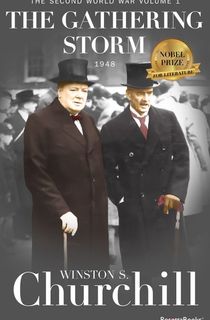

The Gathering Storm
By Winston S. Churchill
Churchill’s two identities as wartime Prime Minister and historian came together in his six-volume history, The Second World War . Volume one, The Gathering Storm , sets the stage for World War II. Based on historical research, government documents, and Churchill’s own recollections, the book chronicles Hitler’s rise to power, Germany’s increasingly aggressive military moves in Europe, Britain’s failed strategy of appeasement, and finally Britain's entry into the conflict in 1939. Churchill’s access to primary sources like telegrams, secret orders, and speeches allows him to give an almost minute-by-minute account of events.
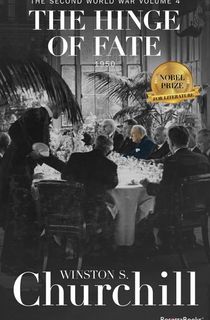
The Hinge of Fate
Volume four of The Second World War finds the Allies in a precarious position. It’s early 1942. The Americans have been attacked at Pearl Harbor , and Singapore has fallen to the Japanese. Yet, in just a few months' time, several decisive military victories will turn the tide of war in the Allies' favor. In The Hinge of Fate , Churchill describes the key decisions that put the Allies on their path to eventual victory.
Inspiring Winston Churchill Quotes That Will Help You Maintain a Stiff Upper Lip
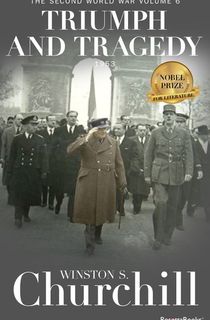
Triumph and Tragedy
Triumph and Tragedy —the sixth and final volume of The Second World War —chronicles the final months of WWII, from the landings at Normandy on D-Day to Japan’s surrender after the bombings of Hiroshima and Nagasaki. Although there have been many other histories of the war written since Churchill published his final volume in 1953, The Second World War still stands as an important portrait of how people felt about the war in its immediate aftermath, from an author with a unique vantage point.
Dust off exclusive book deals and tales from the past when you join The Archive 's newsletter.
Sign up for The Archive 's newsletter, and get untold history delivered straight to your inbox.
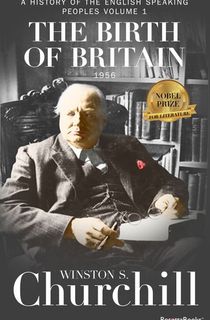
The Birth of Britain
Another of Churchill’s multi-volume histories is A History of the English-Speaking Peoples , his account of Britain from the period of Roman occupation up through Churchill’s own lifetime. The first volume, The Birth of Britain , begins when Julius Caesar invades the British Isles in 55 BCE. From there, he covers quite a bit of ground, concluding the volume with the death of King Richard III in 1485. Through all of it, Churchill’s love for his home country shines through.
Winston Churchill’s Paranormal Encounter Allowed Him to Face His Distant Father

My Early Life
By Winston Churchill
Churchill’s autobiography covers the first 30 years of his life, long before he became Prime Minister. In My Early Life , Churchill recalls his childhood and his years in the British Army. He spent many of his formative years traveling both with the military and as a war correspondent, reporting most famously on the Second Boer War in South Africa. When Churchill published the book in 1930, he was serving as a Conservative Member of Parliament, and had no idea how monumental his next 30 years would be. The book is an important chronicle of the events that would shape Churchill into the giant history remembers him as.

Books About Churchill

Churchill: Walking With Destiny
By Andrew Roberts
Churchill: Walking With Destiny , written by award-winning author Andrew Roberts, is a newer addition to the canon of historical studies of Churchill. Roberts applies the same level of scrutiny to Churchill as he did in his bestselling biographies of Napoleon and King George III. He seeks to understand what made Churchill the man he was, and draws on an extensive body of research—including previously unreleased historical materials—to find his answers. In his study, Roberts also asks what Churchill’s life, and his successes and failures, can teach today’s leaders in an increasingly unstable world.

Churchill Style
By Barry Singer
In Churchill Style , author Barry Singer approaches Churchill not as a towering historical figure, but as a person. While most biographies tend to focus on his political philosophies and wartime strategies, Singer explores his personal interests, from the clothes he liked to his iconic cigars. Supplemented by photographs, Churchill Style allows readers to get to know the man behind the myth.
The Bittersweet History Behind Armistice Day
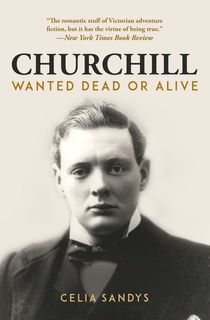
By Celia Sandys
Another more personal approach to Churchill’s life comes from his granddaughter Celia Sandys. Sandys shares the story of her grandfather’s participation as a correspondent and combatant in the Boer War, one of the defining conflicts of South Africa. According to Booklist , "this affectionate biographical portrait of a very young, very spirited, and very enterprising Winston Churchill succeeds in foreshadowing the magnitude of the renown he eventually achieved."

Winston's War
By Max Hastings
No list of books about Churchill would be complete without at least one objective account dedicated to his time as Prime Minister during World War II. In Winston’s War , award-winning historian and journalist Max Hastings chronicles Churchill’s experiences, from his election to Prime Minister in 1940 to the end of the war in 1945. During those turbulent years, Churchill not only had to deal with a world war, but also with several problems on the home front that occasionally posed a threat to his own leadership. Ultimately, Hastings is able to paint a full portrait of the years that defined Churchill’s legacy.

By John Lukacs
In his biography, historian John Lukacs provides a full portrait of Churchill and a thorough assessment of his career. He dedicates chapters to Churchill’s personal life, his relationships with other world leaders like FDR and Stalin, his time as Prime Minister, and his career as a historian. While Lukacs clearly has admiration for Churchill, he does not let that affect his study of his life, spending equal time on Churchill’s failures as he does his successes.
This post is sponsored by Open Road Media. Thank you for supporting our partners, who make it possible for The Archive to continue publishing the history stories you love.
Get historic book deals and news delivered to your inbox
Nonfiction Books » History Books » Historical Figures
The best books on winston churchill, recommended by richard toye.

Winston Churchill: A Life in the News by Richard Toye
Winston Churchill’s role as a global statesman remains immensely controversial. For some he was the heroic champion of liberty, saviour of the free world; for others a callous imperialist with a doleful legacy. Here, historian Richard Toye chooses the best books to help you understand the man behind the myths and Churchill's own role in making those myths.
Interview by Benedict King
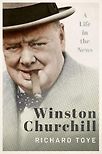
My Early Life 1874-1904 by Winston Churchill
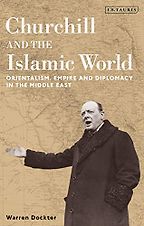
Churchill and the Islamic World: Orientalism, Empire and Diplomacy in the Middle East by Warren Dockter
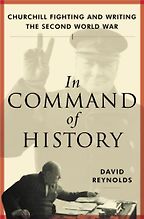
In Command of History: Churchill Fighting and Writing the Second World War by David Reynolds
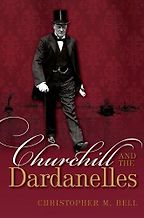
Churchill and the Dardanelles by Christopher M Bell
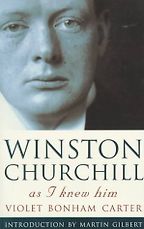
Winston Churchill As I Knew Him by Violet Bonham Carter
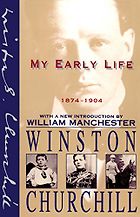
1 My Early Life 1874-1904 by Winston Churchill
2 churchill and the islamic world: orientalism, empire and diplomacy in the middle east by warren dockter, 3 in command of history: churchill fighting and writing the second world war by david reynolds, 4 churchill and the dardanelles by christopher m bell, 5 winston churchill as i knew him by violet bonham carter.
Y our most recent book is Churchill: A Life in the News . Churchill was making the news even before he became a politician, as a soldier, but also, quite literally, as a journalist. What’s your focus in the book?
He was a very good journalist, very interesting, and certainly one of the most highly paid. That background also influenced him when he was prime minister. At the time of the Anzio landings , when things were going badly wrong, there was a minor crisis when British journalists had their press credentials withdrawn because they were alleged to be spreading despair. They were restored, and it turned out to be a little bit of a storm in a teacup, but Churchill said in the House of Commons, “Well, I would never have been allowed, when a correspondent during the Boer War, to use the expression, ‘The situation is desperate.’”
In some ways, as a young man, he was pushing the envelope a bit. He was trying to be a little bit controversial, a little bit provocative, but he was doing so with an understanding that he was governed by the rules of censorship —particularly when he was a serving soldier, and also as a journalist. There were strict limits to what you should and should not say. Having operated as a journalist in that context made him less forgiving and less understanding, later, of journalists who he thought were doing things contrary to his government’s interests, basically by being openly critical of him or his ministers.
In the Boer War he went out as a journalist, then joined in the fighting, didn’t he? But in the Sudan he was actually a commissioned officer who was taking money from The Morning Post.
That was not unusual at the time. How were the newspapers to get their news, unless they had people on the spot? As journalism became more professionalized, some very successful papers started to be able to afford to send their own people out, which they certainly were doing in the 1890s.
Not all war reporting was done by soldiers. But there was still quite a tradition of journalism being a letter which a person has written from a faraway place. It appears in the newspaper six weeks later, when it’s made its way all the way across the sea on a fairly slow boat.
So his dual role wasn’t that eccentric?
No, I don’t think so. Maybe he was unusual in the degree to which he had already decided that he wanted to build a political career and was trying to exploit his opportunities to that end. It’s as if, whatever other people are doing, Churchill was doing it times ten. It became a bit more problematic and controversial when he did it because he was trying to make it into such a high-profile thing. But it certainly wasn’t unique.
You have also contributed to another book published in 2020, The Churchill Myths. What aspect of his reputation is that looking at? And to what extent is it looking at his own role in that myth-making?
We start with the statement that this isn’t a book about Winston Churchill. It’s a book about his image and the way it evolved in the years after his death, and the way in which people have attempted to exploit it for various political purposes. At the level of cartoons and films, there is one fixed Churchillian image—with a cigar—and it’s true. But, actually, in terms of the way in which he’s discussed, there has been a significant evolution.
To give two examples during his own lifetime: nobody in Britain criticised Churchill in respect of the Bengal famine. Partly because they probably didn’t care very much about the Bengal famine, if we’re absolutely honest. But also, the information that we now have about the things which Churchill said and did about the Bengal famine weren’t in the public domain—and remained out of it until the 1970s and 1980s when there were various archival releases, publication of people’s diaries and so on and so forth.
“He wanted to be a celebrity politician.”
Even in the 1990s, there was a critical biography of Churchill by Clive Ponting which doesn’t mention the Bengal famine. Now it’s probably one of the major points of criticism levelled at Churchill, if not the biggest point. Without going into the rights and wrongs of that, it takes archival releases, but it also needs historians to decide that this is an important theme and to start making arguments about it.
On the other hand, one of the things that he’s most celebrated for now—explored in the film Darkest Hour —is the question of whether or not the British should try and explore peace terms via Italy in 1940. All these discussions did take place, but we didn’t know that they took place until the early 1970s, when the cabinet papers were released. Churchill, in his memoirs, not only did not mention them, he explicitly said that there was no discussion of the idea of peace terms whatsoever. Now, he may have been doing that to protect other people. We don’t really know. But he was at pains to deny that it happened and yet, now, that is one of the things for which he is most celebrated. Churchill has always been an icon of Britishness , but how that has played out has been very different over time.
One of the things this book, The Churchill Myths, makes clear is that over the last 40 years the Churchill myth has been even bigger in British politics and more dominant than it was, say, in the first fifteen years after his death. Yet he’s a deeply problematic figure. I think you say in the book that Churchill probably wouldn’t even get into the British National Party these days.
Actually, we quote somebody else as saying that. I don’t think I’d go quite that far! His place in public life is very difficult to judge exactly. There were critical plays in the 1970s, but then you might ask whether that was an elite thing that most of the population never saw. How much weight should we attach to these negative representations?
Thatcher and Reagan made a great play with the Churchill myth, as you would expect. George Bush Sr and John Major didn’t particularly. Tony Blair was interested in doing it, but it was a little bit problematic for him because he was a Labour prime minister and there’s no way you’re going to get a big cheer at the Labour Party Conference from mentioning Churchill. During the Kosovo crisis, for example, he mentioned Clem Attlee and Ernie Bevin standing up to fascism and putting himself in that position.
“Churchill has always been an icon of Britishness, but how that has played out has been very different over time”
Let’s move on to the books. One of Winston Churchill’s own books, My Early Life, is the first one. I’m not quite sure when he wrote it, but what story is he telling about himself?
It was published in 1930 and it is very much the story of his early adventures. It covers his childhood, his schooling, the wars I was mentioning earlier. And it concludes with him getting married to Clementine Hozier. The last line is: “And I lived happily ever after.”
He wrote a lot of other autobiographical works, but in contrast to the multi-volume World Crisis and the six-volume Second World War— which were very much based around documents and trying to justify particular courses of action and, often, to exculpate himself from where he had come in for criticism— My Early Life is a more personal book. His memory is certainly not perfect in every respect. He does slip up and, for example, says he makes a speech one year, when actually he made it the year before. But I think it’s the book that would be most likely to win you over to liking Churchill’s personality, even if you didn’t share his politics. There’s an ironic, kind of self-mocking tone to it, which I think casts him in a better light than much of his other more self-justificatory writing. It shows his ability to laugh at himself and the follies of youth and to be a bit more reflective.
“For a lot of people, if they escaped from prison in South Africa in a dramatic way, that would be the thing for which they were famous. Yet a lot of people don’t know that about Churchill”
It’s funny because he publishes it at a point when he’s about to take a sharp turn to the right and campaign vociferously against greater self-government for India. He doesn’t in that period come across in a particularly forgiving or magnanimous light. But this book is humorous and, of course, it’s a pretty exciting story.
For a lot of people, if they were put in prison in South Africa and then escaped in a very dramatic way, that would be the thing for which they were famous. And yet, a lot of people don’t know that about Churchill because there’s so much focus, understandably enough, on the 1930s and the 1940s. Of course, when people make documentaries about him it gets mentioned, but that is still a fact that would come as a surprise to a lot of people. It shows that there was a Churchill before the Churchill with whom we’re all familiar, with this very dramatic and impressive and often quite strange and problematic backstory. This book enriches your understanding of him, even though it’s not a book to be taken literally as an account of everything that he did.
Is he very consciously positioning himself politically in the book in a way that is then interesting in the light of what happened in the 1930s when he was out of power and then what happened in the war? Is he building personal myths about himself? Or is it fairly free of that kind of thing?
I don’t think it’s egregious. In other books—when he writes about Gallipoli, for example—it’s full of, ‘if only this had happened’ and ‘if ships had arrived 10 minutes earlier, then the whole course of the war have been different’—that kind of thing. I think it was possibly easier for him to write a slightly more modest account of a time when he wasn’t that important in politics. In terms of justifying his entire record, there’s considerably less at stake. Some things were at stake. Aylmer Haldane, one of the other people in the prison in South Africa, contested Churchill’s account of whether or not he’d done the honourable thing in escaping in the way he did. It’s not necessarily a trouble free zone.
He starts the book by saying, ‘I was a child of the Victorian age ’. Now, that reads as a simple statement. And it’s obviously true: he was born in 1874. But what was the significance of that? Why does he choose to say it then? It very much relates to the point I was making earlier, about his turn to campaigning on India . In my book on his imperial views, Churchill’s Empire: The World That Made Him and the World He Made , I argue that his views weren’t frozen in time at the end of the Victorian period. He joined the Liberal Party in 1904 and spent 20 years in the Liberal Party. He was perceived by some as a Little Englander and a danger to the Empire when he was a minister in the Colonial Office in 1905-08.
Support Five Books
Five Books interviews are expensive to produce. If you're enjoying this interview, please support us by donating a small amount .
What he’s actually doing in 1930, having made a swing back to the right throughout much of the previous decade, is re-identifying with his youth and saying, ‘these are my roots’. In that book I say that it was in the interwar years that Churchill decided to become a Victorian. That is to say, there’s image-making going on and, so, although My Early Life is ostensibly a relatively unpolitical book, you can read deeper things into it.
That’s interesting. I’m based in Oxford, where the debate has been raging about Cecil Rhodes. His political vision seemed to involve a union of the British Empire and America imposing peace on the world. It struck me that Rhodes and Churchill were very much contemporaries and that perhaps the ways in which they thought about these things—with Churchill’s History of the English-Speaking Peoples, for example —was very similar. But you’re saying that wasn’t a consistent theme through his political life.
Let’s move on to Warren Dockter’s Churchill and the Islamic World: Orientalism, Empire and Diplomacy . Tell us a bit about this book and why you’ve chosen it.
I’ve chosen it because it relates to the point I was making earlier about some of the complexities of Churchill’s views. It is quite easy to say that Churchill was anti-Indian, but actually, you need to refine this. Churchill was in many respects violently anti-Hindu and was influenced by a key book by Katherine Mayo called Mother India that came out in the 1920s and perpetuated various fairly unpleasant stereotypes about Hindus.
There was a degree to which Churchill was somewhat concerned about the fate of the so-called Untouchables. It wasn’t that he was purely unpleasant but, at the same time, he was more favourable towards Muslims in India. Now, of course, there’s a famous quotation from The River War , his book about the Sudan war in the 1890s, where he says something along the lines that ‘Islam is as dangerous in a man as hydrophobia is in a dog.’ Again, he’s got this image of being totally anti-Islam.
“He commented that the Hindu-Muslim divide was the bulwark of British rule in India; in other words, divide and rule”
Warren’s book explores this in interesting ways. He shows the complexities of it. Everybody who attempted to govern the British Empire had to take account of the fact that the British Empire was—to put it one way—the world’s largest Muslim power.
I remain a bit sceptical about how sincere any of Churchill’s efforts to cultivate Muslims were, and particularly his contacts among the princes. I think he was in theory willing to work with them. But he also made a comment in 1939 in the cabinet that the Hindu-Muslim divide was the bulwark of British rule in India; in other words, divide and rule. You can’t look at all these contacts with Muslims, see him being polite to them and conclude that he must have been a really nice, open-minded, progressive guy. There were deeper things going on. But I think it is an important story.
He was Colonial Secretary just after the First World War, and in that role was instrumental in delineating the borders of Jordan, Iraq and the rest of the Middle East as it is now. Does this book tell us something particular about how he thought about that part of the world or what he thought he was doing at that time?
It shows the complexity of the Islamic world, containing Sunni and Shia, and people of various different ethnicities. It’s a very large part of the world. One would be hard pushed to describe Churchill as pro-Arab. He made various unpleasant comments about them, particularly in relation to the Arabs of Palestine. At the same time, he was somebody who was prey to rather romantic visions of the Middle East. He was friendly with T.E. Lawrence, which was obviously crucial in that respect. As Warren shows in his book, Churchill was quite prone to dressing-up games, getting into Arab clothing and hanging about with people like Lawrence and Wilfred Blunt. There was an orientalist appeal that this had for him.
I’ve seen suggestions that Dockter makes the case that, relatively speaking, Churchill was ‘progressive’ in his policy making towards various parts of the Middle East and Islamic World, compared to the orientalist prejudice of many of his contemporaries. It sounds from what you’ve said that you’d treat such claims with a certain amount of scepticism.
I’d be a little bit cautious and I think that Warren would hold back from saying that Churchill was ‘progressive’ as such. I think he’s trying to show, rightly, a more complex picture.
And I do think that—partly through Churchill’s own fault—he gets it in the neck for decisions that were taken in the Middle East in the immediate aftermath of World War I. Churchill gets the blame for having drawn these lines in the sand and created supposedly unsustainable states at the Cairo Conference of 1921. But there are a lot of things that have gone wrong in the Middle East over the past hundred years, only some of which can be blamed on Churchill. Part of the reason why he gets blamed so much is because he was such a showman that he wanted to associate himself with these decisions, whatever they were, even if he wasn’t really the driving force.
Decisions had to be made. Churchill said, ‘Let’s have a conference in Cairo’. So, everybody made their way out to Cairo. This became a famous episode. But if he’d just let the experts get on with it and sign a few memos, it wouldn’t have been such a big deal. He’s paid the price for something which he himself wanted to do. He wanted to be a celebrity politician. He wanted to get the credit for decisions. In some ways that’s been positive for his reputation and in some ways it’s been negative.
Let’s move on to David Reynolds’ In Command of History . This is about his writing career between his two premierships, from when he lost power at the end of World War II to his return as prime minister in 1951. Is that right?
Yes. One of the reasons I admire this book so much is the technical feat of writing it. The genius is really in the structure. Writing a book about writing a book is a very difficult thing to do when what you’re trying to do is cast light on the historical episodes that the book is about. Reynolds has succeeded brilliantly in doing that and getting the balance right. It’s hard to see how it could have been done better. It’s not too long. He had to be selective because there’s an enormous amount of material and he couldn’t cover everything. But I think he basically chose the right bits. Fundamentally, it’s a book about the way in which Churchill tried to manipulate his account of history in order to make himself look better. That’s what it boils down to. The only criticism I have of the book—and it’s not really a very big one—is that with the title, which is obviously great, there is a slight risk of suggesting that Churchill was always successful in getting his interpretation accepted.
Churchill had the great advantage of having access to lots of original documents, which nobody else had access to and, therefore, it was quite difficult for anybody else to refute his account. But people weren’t stupid. There was a lot of publicly available information that people could use to dispute Churchill’s interpretation and they did. One has to be a bit cautious about thinking that ‘In Command of History’ means he laid down this version and then that became the totally authoritative, uncontested version until such time as the archives were open to everyone.
Obviously the Bengal famine was something that he skirted over, but is there a very broad interpretation of events that he gives, that has subsequently been overturned?
One of the important points in the book is that, in the first volume, The Gathering Storm , David rightly points out that you could read it without really knowing that Churchill spent a huge chunk of the first part of the decade campaigning against the ‘Government of India Bill’. Because Churchill generated so many memoranda, so many speeches over the years, it became fairly easy for him to construct a story where he spotted the danger of Nazi Germany earlier than everybody else and then consistently spent all the time up until 1939 talking about this while—supposedly—barely anybody else paid the slightest bit of attention.
Those are the foundations of the heroic narrative, that he was a uniquely farsighted prophet. Historians would now emphasise—and indeed have been doing for about 50 years, if not longer—that Churchill was concerned to obtain political office and that many of his actions and exactly what he said at particular moments was shaped by that. You can go through his speeches and have fun finding the bits where he said really nice things about Neville Chamberlain, for example.
Churchill, from his own point of view, wouldn’t have denied that he was seeking office. He would have asked how he was going to do anything or get what he wanted unless he held office. And, sure enough, he had to hold office, as First Lord of the Admiralty in 1940, before he could obtain the highest office, that of prime minister.
“He would insist to the publishers, ‘Well, I could finish this volume if I had a holiday in Morocco!’ For which they, of course, were expected to pay…”
The book also shows how accounts of particular episodes during the war were shaped by the desire not to offend the Americans post-war, or not to offend Eisenhower. He might have been quite critical of some things Ike did during the war, but that was not the sort of thing to which he was going to draw attention.
This book is also interesting on the technique by which the book was actually written. Churchill was a bit of a nightmare author. He was always late and the book got larger and larger. There were always corrections up until the last minute. He would insist to the publishers or to Time-Life , who were serialising it, ‘Well, I could finish this volume if I had a holiday in Morocco!’ For which they, of course, were expected to pay…
As well as creating this heroic image of himself through the 1930s and during World War II, did Churchill’s book serve almost as manifesto for him taking over again in the early 1950s and completing undone business, or is that overdoing it a bit?
Let’s move on to Christopher M. Bell’s book, Churchill and the Dardanelles .
The Dardanelles was one of the most controversial episodes of Churchill’s career. Some people might still argue that, if it wasn’t for a few small things going wrong, then it could have been a great success. Again, it’s one of those episodes where Churchill, personally, attracted more opprobrium than was perhaps fully justified. But, at the same time, he walked into the trap. He was exonerated to an extent by the Dardanelles Commission, during the war itself, and he went to great lengths to provide evidence and persuade the commissioners of his righteousness. And it was true that he hadn’t single-handedly ordered this, that it had to have the approval of Asquith as prime minister and all sorts of military figures and other ministers.
“The Dardanelles was one of the most controversial episodes of Churchill’s career.”
His role in the Dardanelles was pretty fundamental but, again, the single hero/villain picture is too simplistic. The book does a very good job of looking at press coverage and shows the ways in which parts of the press, particularly the Morning Post , which by this time had turned against Churchill, were really out to get Churchill and were gearing up to attack him well before things had started to go wrong. Essentially they had some quite weird agendas of their own. At this point he was a Liberal and was seen as a traitor to the Conservative cause.
That was the motivation of the Morning Post , was it, that he was this turncoat?
Reading between the lines. Nobody says, ‘I’m going to do him in because he’s a turncoat’. They say, ‘He’s egotistical, he’s unreliable, he doesn’t listen to military expertise’ et cetera. But it gets so vitriolic that you think, ‘Well, what’s the agenda here, really?’ Chris Bell does a very good job of being very balanced, neither underplaying or overdoing the criticism of what was an absolutely foundational episode and, obviously, very critical for the interpretation of Churchill’s career.
Why did Churchill expend so much time and effort defending himself over the Dardanelles? After the failure of the expedition, he did the honourable thing, resigned and went to fight in the trenches—at least briefly. Why did this episode get under his skin so badly?
I think that he had a deep suspicion that he’d actually really ballsed everything up. If you wanted a psychological reading, based on speculation, you could argue that his sense of guilt was going to be alleviated if he could prove that actually everything was all somebody else’s fault. He was looking for someone else to validate that view. We all do this. We try and explain to ourselves and to anyone who will listen that it couldn’t possibly be us and that, if we did make a mistake, it was entirely understandable at the time, and it was probably somebody else’s fault we did make a mistake, because we didn’t have the right information, or whatever.
I think there’s a powerful urge to self-justification, which we are all prey to and you can imagine how that might operate if you have played a significant role in a colossal military error. I think that did play on his mind and it almost became an obsession: ‘It wouldn’t have gone wrong, if only I’d really been properly listened to’ or ‘if only people had had the courage or conviction to carry on.’ It was as if he was arguing that it would have worked if only they had doubled down. Then it would have been worth it. That would have shown it to be justified.
There’s obviously a direct political motivation. As you mention, he goes to the trenches, but he’s pretty keen to come back, really, not through any lack of physical bravery, but simply because, at a deep level, what he’s really interested in is politics, rather than military affairs. So there’s a practical reason why he needs to justify himself, or thinks that he does. But I think there’s also the more profound psychological motivation to absolve himself.
Lots of people criticized him heavily for it, not just at an official level, but among the population at large. He was held personally responsible for it, wasn’t he?
It’s very difficult to separate out what the papers are saying from what people thought. If you look at World War II, where you start to get Mass Observation diaries, for example, you do see people recalling, or at least being aware of Gallipoli. How much that necessarily had an impact at the time is a bit unclear. There was a famous occasion in, I think, 1923, when he was making a speech and somebody from the audience shouted out, ‘What about Gallipoli?!’ But it wasn’t as if everywhere he went he encountered hecklers who shouted, ‘What about Gallipoli?!’.
Let’s move on to the final book, which is Violet Bonham Carter’s Winston Churchill As I Knew Him . I think this was published in the year he died, but she was a friend of his in his early political career. Is that right?
Yes, throughout his political career, really. She was one of the few close female friends that he had. That’s not to say that he didn’t get on well with women, but most of his close friends were men. That’s not particularly unusual for somebody of his generation or, indeed, probably for many men today. She was, of course, also the daughter of H.H. Asquith and met Churchill early on in his career. She gives this account in the book of the first time they met. At that dinner he says something like, ‘We are all worms, but I do believe I am a glow-worm.’ She captures various memories, which otherwise might not have been recorded.
It was clearly something of a labour of love. It was being prepared for publication before he died. It only takes the story up to 1915. She did think of writing another volume, but never got round to it. It’s full of personal anecdotes and a considerable amount of charm. She was a very determined person. She knew her mind. She didn’t mind telling Churchill off when she thought that he was making mistakes.
There’s a lovely bit of evidence I found in her archive. It was Churchill’s 80th birthday and they were going to publish an edited book, where different people who knew Churchill would provide their memories and reflections. She did contribute. She was the only woman in the book and the editors wrote to her to say they’d like her to write a chapter called ‘Winston Churchill: the Woman’s Perspective’. She refused to do that, saying that it would be as ridiculous to have a chapter called ‘Churchill: the Woman’s Perspective’ as it would be to have a chapter called ‘Churchill: the Man’s Perspective’. She told them she was going to write something else. They got this letter and they wrote back saying, ‘Oh, all right. We accept you’ll write something else. It’s a pity because we would so much have liked to have had ‘Churchill: the Woman’s Perspective’.’ And she writes back and explains it all again which, I have to say, I admire.
“When they met, Churchill said, ‘We are all worms, but I do believe I am a glow-worm’”
But she could be over the top in making a fuss about things. Martin Gilbert, who was Churchill’s official biographer, but in the early 1960s was a researcher, once made the mistake of spelling her surname with a hyphen. And she told him, ‘There’s no hyphen in my name. I’m very very surprised that you should have made this basic mistake.’ She could have been a bit more relaxed about that!
The other thing to say is that nobody quite knows whether, when she first met Churchill, she expected or hoped that he would propose to her. Was she in love with him? If she was, she clearly got over it. We don’t know. When she was writing her own work on Churchill she had a sort of rivalry with Randolph, Churchill’s son, who had started the official biography at the same time. She wrote to him saying, ‘I had all these letters from your father from the early period, but I’ve destroyed them because they’re too personal or too intimate.’ Of course, she may have meant intimate in the political sense. But it’s very sad that that happened and one can only wonder what gossip was in there that we would very much like to have today.
How does her portrait of him compare with his self-portrait in My Early Life ? Did she know him before he was married to Clementine? Does she talk about him largely as a friend in private life, or as a politician, or both?
I think she may have met him as early as 1906, so before he’d really properly met Clementine. Clementine and Winston had a whirlwind courtship in 1908.
How to compare them? You’ve got to remember, there’s a little bit of tension because, rather than just being somebody who wants to give Churchill the best possible write-up, the person she is really concerned about defending is her father. I don’t think there are any particularly obvious points in the book where there is a clash between the two, or at least she manages to nuance it. But, if she had to make a choice between saying something that reflected badly on her father or something that reflected badly on Churchill, then she wouldn’t be afraid to say something critical of Churchill. Whereas Asquith is untouchable. I think that is, actually, an important dynamic.
Get the weekly Five Books newsletter
But it’s basically an affectionate portrait by somebody who was, on the whole, politically sympathetic to him, particularly during his Liberal phase. She was a lifelong Liberal and the respect that he had for her, which was very genuine, was well illustrated in the general election of 1951. She ran as a Liberal in Colne Valley and he succeeded in getting the Conservative candidate to stand aside. In fact she lost anyway, but he was so determined that she should be elected that he was willing to put the fundamental interest of the Conservative Party to one side.
That was partly a political strategy on his part, because he wanted to appeal to Liberal voters and former Liberal voters and to win them back from Attlee. He wants to play up his own former Liberal credentials and he wants to highlight Liberals and former Liberals whom he’s associated with. But his willingness to challenge the bureaucracy of his own party over this does show the very considerable respect he had for her.
What kind of a book is it? Is she quoting evidence to support points she’s making, or is it a simple memoir , her own recollection at the time of writing?
It’s more of a memoir. She had a researcher working for her on it, so she didn’t just sit there and write it off the top of her head. She definitely made sure she had her factual points of orientation and got her dates right. And she had kept extensive diaries and letters, which have subsequently been published. You do get some discrepancies. The glow-worm quote isn’t in the diary. So, you do wonder, did she just forget to write it in her diary, but remember it clearly and reproduce it years later? Or did her mind play some weird trick on her, or did he say it on some other occasion? One always gets little questions like that.
And in what sense is she using her memory of Churchill up until 1911 to defend her father politically?
If Churchill can be shown to have been virtuously promoting Liberal reforms, that reflects well on her father. I’m certainly not saying she wrote the book on Churchill in order to vindicate Asquith. But it’s a benefit of the book, in a way, because it means she’s not going to be an absolutely uncritical or slavish admirer of Churchill, whether or not she makes all the right criticisms. I think that, for that reason, it becomes a better book because it has that element of distance, while still being admiring.
Finally, I’m curious to get your views on the Churchill book publishing phenomenon—as an insider. Do you see it just increasing with ever greater strength from year to year, or will it reach saturation? What keeps it going?
I think the books I’ve cited show it’s possible to take an original approach to Churchill and take an angle which nobody has ever done before. But there isn’t an inexhaustible supply of people who are willing and able to do that systematically and create new insights.
At the other end, there is a market for what you might call the ‘Churchill’s laundry lists’ angle. Or, if you want to write a book about some aspect of World War II you call it ‘Churchill’s Bomb-Sight Developers’ or something like that. There’s a certain amount of mediocre work that continues to be promoted. And then there are some things that are OK as ‘curiosities’—I won’t name any titles, it would be unfair. They are perfectly alright as far as they go, but they don’t really advance our understanding very much.
Every couple of years another really good book on Churchill comes out and, at the same time, huge numbers that are somewhat indifferent. I expect it will continue in a similar vein for the foreseeable future.
One final question. Is there a particular one volume biography that you would recommend? I’m only aware of Roy Jenkins’ and Andrew Roberts’ , but there may be others.
I would probably recommend Paul Addison’s Churchill: The Unexpected Hero , particularly bearing in mind that not everybody wants to read an awful lot about Churchill and that it is a fairly short one. It’s very scholarly, but very accessible. I think Paul, who died this year, was an excellent historian, who deserves more recognition. When I was running a course on Churchill, that was the book I told my students to read over the summer. That and My Early Life and they’d be well set up with a basic understanding for the start of the year.
That would be my recommendation, rather than an intimidating doorstopper, although Roy Jenkins’ book understandably—and rightly—has a lot of fans.
August 3, 2020
Five Books aims to keep its book recommendations and interviews up to date. If you are the interviewee and would like to update your choice of books (or even just what you say about them) please email us at [email protected]
Richard Toye
Richard Toye is Professor of Modern History at the University of Exeter. He previously worked at the University of Cambridge. He has written widely on modern British and international political and economic history. His critically acclaimed book Lloyd George and Churchill: Rivals for Greatness won him the 2007 Times Higher Young Academic Author of the Year Award.
We ask experts to recommend the five best books in their subject and explain their selection in an interview.
This site has an archive of more than one thousand seven hundred interviews, or eight thousand book recommendations. We publish at least two new interviews per week.
Five Books participates in the Amazon Associate program and earns money from qualifying purchases.
© Five Books 2024

Official Biography
- The Churchill Documents
- Book Reviews
- Bibliography
- Annotated Bibliography: Works About Churchill
- General, 1874-1977
- Travels, 1874-1961
- Palestine, 1945-46
- Israel, 1947-49
- Election Results
- The Art of Winston Churchill Gallery
- Churchill Conference Archive
- Dramatizations
- Documentaries

Winston S. Churchill
by Randolph S. Churchill and Martin Gilbert
“A milestone, a monument, a magisterial achievement… rightly regarded as the most comprehensive life ever written of any age.” —Andrew Roberts, historian and author
“The most scholarly study of Churchill in war and peace ever written.” —Herbert Mitgang, The New York Times
“Confronted with this mighty ocean of narrative, the only possible response is total immersion. The great tidal wave of detail plunges the reader almost involuntarily into Churchill’s life….It is a Churchilliad, and Gilbert is its bard.” —Simon Schama, The New Republic
Volume I, Youth, 1874-1900
This wonderfully readable volume was received with broad praise. Generally positive, though not without criticism, it reflects the theme of the work, “he shall be his own biographer,” but Randolph Churchill adds his own literary style, thoroughly documented with “wonderful grub” provided by his dedicated researchers, including his ultimate successor, Martin Gilbert. The text covers the years from Churchill’s birth in 1874, his education at Harrow and Sandhurst, his early adventures as a war correspondent and sensational escape during the Boer War, his North American lecture tour, and his entry into Parliament. The term “official” does not mean that the biographers were required to stick to an authorized line or avoid certain subjects; rather, that they were allowed unprecedented access to the Churchill archive from which the biography is largely drawn. Buy Volume 1 Now >
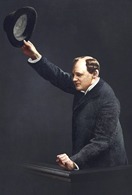
Volume II, Young Statesman, 1901-1914
The last volume written by Randolph Churchill traces the story of his father’s entry into Parliament as a Conservative, aged twenty-six. An independent spirit and rebel, Churchill is praised for his maiden speech by the Leader of the Opposition. His lifelong collegiality toward the opposite party is soon in evidence. Finally, in 1904, he breaks with the Conservatives over Free Trade, which he ardently supports. “Crossing the floor” to the Liberals with his usual good timing, Churchill holds increasingly important cabinet positions in the great Liberal governments of 1906-14. The volume details his work as a crusading Home Secretary, his key role in reforming the House of Lords, his advocacy of Irish Home Rule, and his arrival at the Admiralty, where he prepares the Royal Navy for war with Germany. Buy Volume 2 Now >
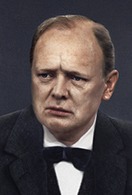
Volume III, The Challenge of War, 1914-1916
Martin Gilbert, appointed official biographer after Randolph’s death in 1968, now begins an almost day by day chronology of Churchill’s life, concentrating on the first perilous years of World War I. We begin with Churchill leading the Admiralty in early battles with the German fleet, moving to the epic failure of the Dardanelles and Gallipoli campaigns, when Churchill falls from power and is exiled to Belgian trenches as “the escaped scapegoat.” Detailed accounts describe Churchill the warrior, including his efforts to prolong the siege of Antwerp, to develop the expanded use of air power, and to promote his concept for what he calls a “land caterpillar,” soon to be known as the tank. In Flanders, he heads a battalion of Scots Fusiliers—at first unwelcome, later beloved by them all. Buy Volume 3 Now >
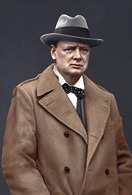
Volume IV, World in Torment, 1916-1922
This meticulous account of Churchill’s wide-ranging activities toward the end of World War I and its aftermath displays his persuasive oratory, administrative skill, and masterful leadership. Remarkably, only a few years after the disaster of the Dardanelles, Churchill regains a leading position in British political life. He returns to government as Minister of Munitions, becomes Minister for War and Air, and finally Colonial Secretary. Here we read of his minor role in the Versailles Treaty, his critical work demobilizing the army, and his intervention against the Bolsheviks in Russia. Here too we see his actions over the Chanak Crisis with Turkey, the remaking of the Middle East, and the creation of the Irish Free State, when an Irish patriot wrote: “Tell Winston we could never have done without him.” Buy Volume 4 Now >
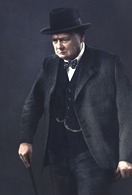
Volume V, The Prophet of Truth, 1922-1939
Here is a vivid, intimate picture of Churchill’s public and private life between the wars—eighteen years of triumph and tragedy. He becomes Chancellor of the Exchequer and defends the government during the General Strike. Out of office in 1929, he travels North America, enters a ten year sojourn in the political wilderness, but soon reaches his zenith as a writer. He fights the India Bill, champions Edward VIII in the Abdication crisis, and warns of the threat of Hitler. Martin Gilbert reveals the extent to which senior civil servants and officers risked their careers supplying Churchill with secret information about German rearmament. Finally, war is declared in September 1939 and Churchill becomes First Lord of the Admiralty a quarter century since he last held that post. Buy Volume 5 Now >
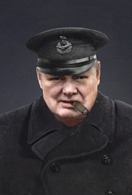
Volume VI, Finest Hour, 1939-1941
This precise narrative puts us at Churchill’s shoulder during the most critical years of his life and the world’s, starting with the outbreak of war in September 1939 and ending with the Japanese attack on Pearl Harbor. Martin Gilbert unfolds the early events of World War II: Hitler’s supreme triumph on the continent, Britain’s victories in the air, the London Blitz, the U-boat war, Hitler’s attack on Russia, Churchill’s first personal contact with Roosevelt at the Atlantic Charter conference in August 1941, Pearl Harbor, and the forging of the “Grand Alliance.” In Churchill’s crucial meetings with FDR, Gilbert shows not only how each decision was reached, but what influences lay behind it, carefully developing an intimate account of a unique—if not wholly untroubled—relationship between the two great allies. Buy Volume 6 Now >
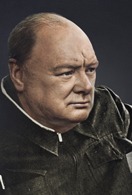
Volume VII, Road to Victory, 1941-1945
This volume runs from the Japanese attack on Hawaii and British Asia in 1941 through V-E Day and beyond to the end of World War II. From the nadir of the war we observe the turning of “the Hinge of Fate,” the battles of Alamein and Stalingrad, the invasions of North Africa, Italy, and finally France. We are there for the great summit conferences, from Moscow in 1942 (“like carrying a large lump of ice to the North Pole”) to Teheran, Yalta, and Potsdam. We witness Churchill’s reaction to the waxing of American and Soviet power, the ring closing around Germany, arguments over invasion routes, the death of Hitler, growing concerns about postwar Soviet expansion, the atomic bomb, and the fateful British election that cost the prime minister his job. Buy Volume 7 Now >
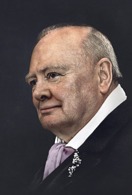
Volume VIII, Never Despair, 1945-1965
The final volume covers Churchill’s last twenty years, starting with his role as a scintillating Leader of the Opposition (1945-51). We witness his great speeches of resolve and reconciliation at Fulton, Zurich, and The Hague, his efforts for “a final settlement” with the Soviets, and Eisenhower’s determined resistance. We follow Churchill’s return to the premiership (1951-55), his last efforts to secure permanent peace, his resignation, his final words to his colleagues, his declining years, and his death—seventy years almost to the hour of his father’s passing in 1895. Included is the full text of “The Dream,” Churchill’s imagined encounter with his father’s ghost, when he describes all that has happened since 1895—never revealing the role Winston himself played. Buy Volume 8 Now >
History of the Official Biography
February 1932
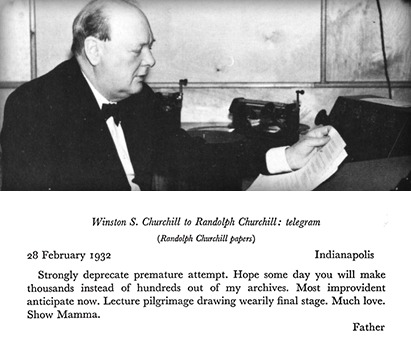
Randolph Churchill asks his father for permission to write his biography. Winston says wait.
Winston Churchill writes his son Randolph: “I have reflected carefully on what you said. I think that your biography of Derby is a remarkable work, and I should be happy that you should write my official biography when the time comes.”
October 25, 1962
Martin Gilbert is hired by Randolph Churchill to serve as one of his research assistants.
Randolph Churchill publishes the first narrative volume of the official biography, Winston S. Churchill: Youth, 1874-1900.
Randolph Churchill dies aged only 57.
October 1968
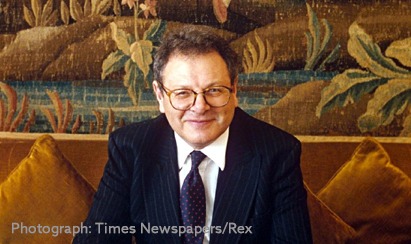
Martin Gilbert is selected to succeed the late Randolph Churchill as the official biographer.
Larry Arnn begins working on the official biography as Sir Martin’s research assistant.
Martin Gilbert publishes the eighth and final narrative volume of the official biography, Winston S. Churchill: Never Despair, 1945-1965.
The document volumes, which had ceased appearing in 1982 after The Coming of War 1936-1939, resume publication as The Churchill War Papers, thanks to the kind generosity of Wendy Reves.
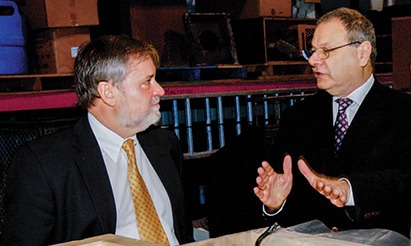
Martin Gilbert accepts a position with Hillsdale College as the William and Berniece Grewcock Distinguished Fellow.
Hillsdale College becomes the publisher of the official biography and undertakes to return every previous volume to print along with the still-unpublished document volumes covering 1942-1965.
The first Hillsdale editions are published, comprising Volume I, Youth 1874-1900, together with its two document volumes. Henceforth, the document volumes will be numbered sequentially.
After forty-four years as official biographer, Martin Gilbert falls ill and is unable to continue his work.
Hillsdale’s document volumes reach Vol. 17, Testing Times, 1942—the first new set of documents in thirteen years.
February 2015
Sir Martin Gilbert passes away aged 78.
Larry Arnn edits and publishes The Churchill Documents: Volume 18, One Continent Redeemed, January –August 1943 as a continuation of Martin Gilbert’s work.
October 2016
Volume 19, Fateful Question, September 1943 to April 1944, is published. At over 2,700 pages, it is the longest volume to date.
February 2018
Volume 20, Normandy and Beyond, May-December 1944, is published.
September 2018
Volume 21, The Shadows of Victory, January-July 1945, is published.
August 2019
Volume 22, Leader of the Opposition, August 1945 to October 1951, is published.
Volume 23, Never Flinch, Never Weary, November 1951 to February 1965, is published, thus completing the publication of the Official Biography.
Stay In Touch With Us
Subscribe now and receive weekly newsletters with educational materials, new courses, interesting posts, popular books, and much more!
YOUR EMAIL ADDRESS
- Share full article
Advertisement
Supported by
Is This the Best One-Volume Biography of Churchill Yet Written?

- Apple Books
- Barnes and Noble
- Books-A-Million
When you purchase an independently reviewed book through our site, we earn an affiliate commission.
By Richard Aldous
- Nov. 13, 2018
CHURCHILL Walking With Destiny By Andrew Roberts Illustrated. 1,105 pp. Viking. $40.
In April 1955, on the final weekend before he left office for the last time, Winston Churchill had the vast canvas of Peter Paul Rubens’s “The Lion and the Mouse” taken down from the Great Hall at the prime ministerial retreat of Chequers. He had always found the depiction of the mouse too indistinct, so he retrieved his paint brushes and set about “improving” on the work of Rubens by making the hazy rodent clearer. “If that is not courage,” Lord Mountbatten, the First Sea Lord, said later, “I do not know what is.”
Lack of courage was never Churchill’s problem. As a young man he was mentioned in dispatches for his bravery fighting alongside the Malakand Field Force on the North-West Frontier , and subsequently he took part in the last significant cavalry charge in British history at the Battle of Omdurman in central Sudan . In middle age he served in the trenches of World War I, during which time a German high-explosive shell came in through the roof of his dugout and blew his mess orderly’s head clean off. Later, as prime minister during World War II, and by now in his mid-60s, he thought nothing of visiting bomb sites during the Blitz or crossing the treacherous waters of the Atlantic to see President Roosevelt despite the very real chance of being torpedoed by German U-boats.
Churchill had political courage too, not least as one of the few to oppose the appeasement of Hitler. Many had thought him a warmonger and even a traitor. “I have always felt,” said that scion of the Establishment, Lord Ponsonby, at the time of the Munich debate in 1938, “that in a crisis he is one of the first people who ought to be interned.” Instead, when the moment of supreme crisis came in 1940, the British people turned to him for leadership. Here was his ultimate projection of courage: that Britain would “never surrender.”
If courage was not the issue, lack of judgment often was. Famous military disasters attached to his name, including Antwerp in 1914 , the Dardanelles (Gallipoli) in 1915 and Narvik in 1940 . So too did political controversies, like turning up in person to instruct the police during a violent street battle with anarchists, defying John Maynard Keynes in returning Britain to the gold standard or rashly supporting Edward VIII during the abdication crisis. His views on race and empire were anachronistic even for those times. The carpet bombing of German cities during World War II; the “naughty document” that handed over Romania and Bulgaria to Stalin; comparing the Labour Party to the Gestapo — the list of Churchillian controversies goes on. Each raised questions about his temperament and character. His drinking habits also attracted comment.
Such is the challenge facing any biographer of Churchill: how to weigh in the balance a life filled with so much triumph and disaster, adulation and contempt. The historian Andrew Roberts’s insight about Churchill’s relation to fate in “Churchill: Walking With Destiny” comes directly from the subject himself. “I felt as if I were walking with destiny,” Churchill wrote of that moment in May 1940 when he achieved the highest office. But the story Roberts tells is more sophisticated and in the end more satisfying. “For although he was indeed walking with destiny in May 1940, it was a destiny that he had consciously spent a lifetime shaping,” Roberts writes, adding that Churchill learned from his mistakes, and “put those lessons to use during civilization’s most testing hour.” Experience and reflection on painful failures, while less glamorous than a fate written in the stars, turn out to be the key ingredients in Churchill’s ultimate success.
We are having trouble retrieving the article content.
Please enable JavaScript in your browser settings.
Thank you for your patience while we verify access. If you are in Reader mode please exit and log into your Times account, or subscribe for all of The Times.
Thank you for your patience while we verify access.
Already a subscriber? Log in .
Want all of The Times? Subscribe .

Search form
- Advanced Search
Churchill: Walking with Destiny (Paperback)

Description
About the author, praise for….
- Biography & Autobiography / Historical
- History / Wars & Conflicts / World War II
- History / Europe / Great Britain
- Kobo eBook (November 5th, 2018): $13.99
- Hardcover (November 6th, 2018): $43.00
Select your cookie preferences
We use cookies and similar tools that are necessary to enable you to make purchases, to enhance your shopping experiences and to provide our services, as detailed in our Cookie notice . We also use these cookies to understand how customers use our services (for example, by measuring site visits) so we can make improvements.
If you agree, we'll also use cookies to complement your shopping experience across the Amazon stores as described in our Cookie notice . Your choice applies to using first-party and third-party advertising cookies on this service. Cookies store or access standard device information such as a unique identifier. The 96 third parties who use cookies on this service do so for their purposes of displaying and measuring personalized ads, generating audience insights, and developing and improving products. Click "Decline" to reject, or "Customise" to make more detailed advertising choices, or learn more. You can change your choices at any time by visiting Cookie preferences , as described in the Cookie notice. To learn more about how and for what purposes Amazon uses personal information (such as Amazon Store order history), please visit our Privacy notice .
Sorry, there was a problem.

Download the free Kindle app and start reading Kindle books instantly on your smartphone, tablet or computer – no Kindle device required .
Read instantly on your browser with Kindle for Web.
Using your mobile phone camera - scan the code below and download the Kindle app.

Image Unavailable

- To view this video download Flash Player

Follow the author

Churchill: Walking with Destiny Hardcover – 4 Oct. 2018
THE INTERNATIONAL BESTSELLER A SUNDAY TIMES, THE TIMES, ECONOMIST, DAILY TELEGRAPH, EVENING STANDARD, OBSERVER BOOK OF THE YEAR 'Undoubtedly the best single-volume life of Churchill ever written' Dominic Sandbrook, Sunday Times A magnificently fresh and unexpected biography of Churchill, by one of Britain's most acclaimed historians Winston Churchill towers over every other figure in twentieth-century British history. By the time of his death at the age of 90 in 1965, many thought him to be the greatest man in the world. There have been over a thousand previous biographies of Churchill. Andrew Roberts now draws on over forty new sources, including the private diaries of King George VI, used in no previous Churchill biography to depict him more intimately and persuasively than any of its predecessors. The book in no way conceals Churchill's faults and it allows the reader to appreciate his virtues and character in full: his titanic capacity for work (and drink), his ability see the big picture, his willingness to take risks and insistence on being where the action was, his good humour even in the most desperate circumstances, the breadth and strength of his friendships and his extraordinary propensity to burst into tears at unexpected moments. Above all, it shows us the wellsprings of his personality - his lifelong desire to please his father (even long after his father's death) but aristocratic disdain for the opinions of almost everyone else, his love of the British Empire, his sense of history and its connection to the present. During the Second World War, Churchill summoned a particular scientist to see him several times for technical advice. 'It was the same whenever we met', wrote the young man, 'I had a feeling of being recharged by a source of living power.' Harry Hopkins, President Roosevelt's emissary, wrote 'Wherever he was, there was a battlefront.' Field Marshal Sir Alan Brooke, Churchill's essential partner in strategy and most severe critic in private, wrote in his diary, 'I thank God I was given such an opportunity of working alongside such a man, and of having my eyes opened to the fact that occasionally such supermen exist on this earth.'
- Print length 1152 pages
- Language English
- Publisher Allen Lane
- Publication date 4 Oct. 2018
- Dimensions 16.2 x 5.3 x 24 cm
- ISBN-10 9780241205631
- ISBN-13 978-0241205631
- See all details
From the Publisher


Product description
From the inside flap, from the back cover, about the author, product details.
- ASIN : 0241205638
- Publisher : Allen Lane; 1st edition (4 Oct. 2018)
- Language : English
- Hardcover : 1152 pages
- ISBN-10 : 9780241205631
- ISBN-13 : 978-0241205631
- Dimensions : 16.2 x 5.3 x 24 cm
- 1,176 in Political Leader Biographies
- 1,518 in World War II Biographies (Books)
- 1,526 in British Historical Military Biographies

About the author
Andrew roberts.
Discover more of the author’s books, see similar authors, read book recommendations and more.
Customer reviews
- 5 star 4 star 3 star 2 star 1 star 5 star 82% 12% 4% 1% 1% 82%
- 5 star 4 star 3 star 2 star 1 star 4 star 82% 12% 4% 1% 1% 12%
- 5 star 4 star 3 star 2 star 1 star 3 star 82% 12% 4% 1% 1% 4%
- 5 star 4 star 3 star 2 star 1 star 2 star 82% 12% 4% 1% 1% 1%
- 5 star 4 star 3 star 2 star 1 star 1 star 82% 12% 4% 1% 1% 1%
Customer Reviews, including Product Star Ratings, help customers to learn more about the product and decide whether it is the right product for them.
To calculate the overall star rating and percentage breakdown by star, we don’t use a simple average. Instead, our system considers things like how recent a review is and if the reviewer bought the item on Amazon. It also analyses reviews to verify trustworthiness.
Customers say
Customers find the prose readable, clear, and succinct. They describe the biography as excellent, fantastic, and unbiased. Readers also appreciate the information value, saying it provides great insight into the vast experiences of its subject.
AI-generated from the text of customer reviews
Customers find the prose very readable, clear, and succinct. They say the book is well-researched and well-written. Readers also mention the author is not too academic or verbose. They appreciate the stirring narrative drive, consummate control of detail, subtlety, and sense of humor.
"... HIghly readable and highly recommended." Read more
"... Beautifully written and expertly researched. It covers all aspects of Churchill's personal and public life and times...." Read more
"A good weighty book and a good weighty read. Interesting and well written ...." Read more
"...The answer is he does not. Instead he provides clear and succinct passages on all the major events without becoming bogged down in too much..." Read more
Customers find the biography excellent, fantastic, and unbiased. They say it's a wonderful insight into a truly great Englishman. Readers also mention the book is brilliantly written.
"... An excellent biography . I cannot see it being surpassed as the definitive one volume history of Churchill's life...." Read more
"Andrew Roberts has, in my opinion, written a magnificent biography of Churchill . Beautifully written and expertly researched...." Read more
"This is a brilliantly written bio of an endlessly fascinating man. If you have an image of Churchill as a boring old fart, you're in for a treat...." Read more
"... Andrew Roberts biography is marvellous ." Read more
Customers find the book informative and well-researched. They say it provides great insight into the vast experiences of its subject. Readers also mention the book gives a clear understanding of the man and his history.
"...Beautifully written and expertly researched . It covers all aspects of Churchill's personal and public life and times...." Read more
"Really interesting and informative book but the print is very small and needs lots of concentration." Read more
"...It is a well-written, detailed and informative work which somehow manages to provide new insights on one of history's most studied individuals...." Read more
"...WW1 (10% through) and I'm finding it very well written and scholarly rather than pacey . That's fine by me...." Read more
Customers find the book gripping and interesting. They say it's a very thick tome.
"A good weighty book and a good weighty read . Interesting and well written...." Read more
"...Buy it.Update to full book. Dense and detailed but what quality...." Read more
"This is a very thick tome . Probably the longest book I have read...." Read more
" New material - gripping read ..." Read more
Reviews with images

Five stars for a five star book by a five star historian

- Sort reviews by Top reviews Most recent Top reviews
Top reviews from United Kingdom
There was a problem filtering reviews right now. please try again later..
Top reviews from other countries
- UK Modern Slavery Statement
- Amazon Science
- Sell on Amazon
- Sell on Amazon Business
- Sell on Amazon Handmade
- Associates Programme
- Fulfilment by Amazon
- Seller Fulfilled Prime
- Advertise Your Products
- Independently Publish with Us
- Host an Amazon Hub
- › See More Make Money with Us
- The Amazon Barclaycard
- Credit Card
- Amazon Money Store
- Amazon Currency Converter
- Payment Methods Help
- Shop with Points
- Top Up Your Account
- Top Up Your Account in Store
- COVID-19 and Amazon
- Track Packages or View Orders
- Delivery Rates & Policies
- Returns & Replacements
- Manage Your Content and Devices
- Amazon Mobile App
- Customer Service
- Accessibility
- Conditions of Use & Sale
- Privacy Notice
- Cookies Notice
- Interest-Based Ads Notice

- History & Society
- Science & Tech
- Biographies
- Animals & Nature
- Geography & Travel
- Arts & Culture
- Games & Quizzes
- On This Day
- One Good Fact
- New Articles
- Lifestyles & Social Issues
- Philosophy & Religion
- Politics, Law & Government
- World History
- Health & Medicine
- Browse Biographies
- Birds, Reptiles & Other Vertebrates
- Bugs, Mollusks & Other Invertebrates
- Environment
- Fossils & Geologic Time
- Entertainment & Pop Culture
- Sports & Recreation
- Visual Arts
- Demystified
- Image Galleries
- Infographics
- Top Questions
- Britannica Kids
- Saving Earth
- Space Next 50
- Student Center
- Introduction & Top Questions
As Liberal minister
- During World War I
- In and out of office, 1922–29
- Exclusion from office, 1929–39
- As prime minister
- Formation of the “grand alliance”
- Military successes and political problems
- Electoral defeat
- As opposition leader and world statesman
- As prime minister again
- Retirement and death

What did Winston Churchill do during World War II?
What was winston churchill’s family background, where was winston churchill educated.
- Who won World War I?
- How many people died during World War I?

Winston Churchill
Our editors will review what you’ve submitted and determine whether to revise the article.
- Historic UK - Winston Churchill
- Warfare History Network - Prime Minister Winston Churchill Led his Nation During World War II
- Electronic Journal of Social and Strategic Studies - Winston Churchill and the Battle of Crete (1941)
- Churchill Archives Centre - Sir Winston Churchill: A biography
- America’s National Churchill Museum - Meet Winston Churchill
- History Learning Site - Biography of Winston Churchill
- The Churchill Project - Great Contemporaries: Jan Christian Smuts
- The Nobel Prize - Winston Churchill
- Winston Churchill - Children's Encyclopedia (Ages 8-11)
- Winston Churchill - Student Encyclopedia (Ages 11 and up)
- Table Of Contents
As prime minister (1940–45) during most of World War II , Winston Churchill rallied the British people and led the country from the brink of defeat to victory. He shaped Allied strategy in the war, and in the war’s later stages he alerted the West to the expansionist threat of the Soviet Union .
Through his father, Lord Randolph Churchill , a Tory politician, Winston was directly descended from John Churchill, 1st duke of Marlborough, the hero of the wars against Louis XIV of France in the early 18th century. His mother, Jennie Jerome , was the daughter of a New York financier and horse racing enthusiast, Leonard W. Jerome.
At Harrow School , Winston Churchill’s conspicuously poor academic record provoked his father’s decision to enter him into an army career. On his third attempt he managed to pass the entrance examination to the Royal Military College (now Academy), Sandhurst , but, once there, he applied himself seriously and graduated 20th in a class of 130.
News •
Winston Churchill (born November 30, 1874, Blenheim Palace , Oxfordshire, England—died January 24, 1965, London) was a British statesman, orator, and author who as prime minister (1940–45, 1951–55) rallied the British people during World War II and led his country from the brink of defeat to victory.
After a sensational rise to prominence in national politics before World War I , Churchill acquired a reputation for erratic judgment in the war itself and in the decade that followed. Politically suspect in consequence, he was a lonely figure until his response to Adolf Hitler’s challenge brought him to leadership of a national coalition in 1940. With Franklin D. Roosevelt and Joseph Stalin he then shaped Allied strategy in World War II, and after the breakdown of the alliance he alerted the West to the expansionist threat of the Soviet Union . He led the Conservative Party back to office in 1951 and remained prime minister until 1955, when ill health forced his resignation.
In Churchill’s veins ran the blood of both of the English-speaking peoples whose unity, in peace and war, it was to be a constant purpose of his to promote. Through his father, Lord Randolph Churchill , the meteoric Tory politician, he was directly descended from John Churchill, 1st duke of Marlborough , the hero of the wars against Louis XIV of France in the early 18th century. His mother, Jennie Jerome , a noted beauty, was the daughter of a New York financier and horse racing enthusiast, Leonard W. Jerome.
The young Churchill passed an unhappy and sadly neglected childhood, redeemed only by the affection of Mrs. Everest, his devoted nurse. At Harrow his conspicuously poor academic record seemingly justified his father’s decision to enter him into an army career. It was only at the third attempt that he managed to pass the entrance examination to the Royal Military College, now Academy, Sandhurst, but, once there, he applied himself seriously and passed out (graduated) 20th in a class of 130. In 1895, the year of his father’s tragic death, he entered the 4th Hussars. Initially the only prospect of action was in Cuba, where he spent a couple of months of leave reporting the Cuban war of independence from Spain for the Daily Graphic (London). In 1896 his regiment went to India, where he saw service as both soldier and journalist on the North-West Frontier (1897). Expanded as The Story of the Malakand Field Force (1898), his dispatches attracted such wide attention as to launch him on the career of authorship that he intermittently pursued throughout his life. In 1897–98 he wrote Savrola (1900), a Ruritanian romance , and got himself attached to Lord Kitchener’s Nile expeditionary force in the same dual role of soldier and correspondent. The River War (1899) brilliantly describes the campaign.
Political career before 1939
The five years after Sandhurst saw Churchill’s interests expand and mature. He relieved the tedium of army life in India by a program of reading designed to repair the deficiencies of Harrow and Sandhurst, and in 1899 he resigned his commission to enter politics and make a living by his pen. He first stood as a Conservative at Oldham, where he lost a by-election by a narrow margin, but found quick solace in reporting the South African War for The Morning Post ( London ). Within a month after his arrival in South Africa he had won fame for his part in rescuing an armoured train ambushed by Boers, though at the price of himself being taken prisoner. But this fame was redoubled when less than a month later he escaped from military prison. Returning to Britain a military hero, he laid siege again to Oldham in the election of 1900. Churchill succeeded in winning by a margin as narrow as that of his previous failure. But he was now in Parliament and, fortified by the £10,000 his writings and lecture tours had earned for him, was in a position to make his own way in politics.

A self-assurance redeemed from arrogance only by a kind of boyish charm made Churchill from the first a notable House of Commons figure, but a speech defect, which he never wholly lost, combined with a certain psychological inhibition to prevent him from immediately becoming a master of debate. He excelled in the set speech, on which he always spent enormous pains, rather than in the impromptu; Lord Balfour, the Conservative leader, said of him that he carried “heavy but not very mobile guns.” In matter as in style he modeled himself on his father, as his admirable biography , Lord Randolph Churchill (1906; revised edition 1952), makes evident, and from the first he wore his Toryism with a difference, advocating a fair, negotiated peace for the Boers and deploring military mismanagement and extravagance.
In 1904 the Conservative government found itself impaled on a dilemma by Colonial Secretary Joseph Chamberlain’s open advocacy of a tariff. Churchill, a convinced free trader , helped to found the Free Food League. He was disavowed by his constituents and became increasingly alienated from his party. In 1904 he joined the Liberals and won renown for the audacity of his attacks on Chamberlain and Balfour. The radical elements in his political makeup came to the surface under the influence of two colleagues in particular, John Morley, a political legatee of W.E. Gladstone, and David Lloyd George , the rising Welsh orator and firebrand. In the ensuing general election in 1906 he secured a notable victory in Manchester and began his ministerial career in the new Liberal government as undersecretary of state for the colonies. He soon gained credit for his able defense of the policy of conciliation and self-government in South Africa. When the ministry was reconstructed under Prime Minister Herbert H. Asquith in 1908, Churchill was promoted to president of the Board of Trade, with a seat in the cabinet. Defeated at the ensuing by-election in Manchester , he won an election at Dundee . In the same year he married the beautiful Clementine Hozier; it was a marriage of unbroken affection that provided a secure and happy background for his turbulent career.

At the Board of Trade, Churchill emerged as a leader in the movement of Liberalism away from laissez-faire toward social reform. He completed the work begun by his predecessor, Lloyd George, on the bill imposing an eight-hour maximum day for miners. He himself was responsible for attacking the evils of “sweated” labour by setting up trade boards with power to fix minimum wages and for combating unemployment by instituting state-run labour exchanges.
When this Liberal program necessitated high taxation, which in turn provoked the House of Lords to the revolutionary step of rejecting the budget of 1909, Churchill was Lloyd George’s closest ally in developing the provocative strategy designed to clip the wings of the upper chamber. Churchill became president of the Budget League, and his oratorical broadsides at the House of Lords were as lively and devastating as Lloyd George’s own. Indeed Churchill, as an alleged traitor to his class, earned the lion’s share of Tory animosity . His campaigning in the two general elections of 1910 and in the House of Commons during the passage of the Parliament Act of 1911 , which curbed the House of Lords’ powers, won him wide popular acclaim. In the cabinet his reward was promotion to the office of home secretary. Here, despite substantial achievements in prison reform, he had to devote himself principally to coping with a sweeping wave of industrial unrest and violent strikes. Upon occasion his relish for dramatic action led him beyond the limits of his proper role as the guarantor of public order. For this he paid a heavy price in incurring the long-standing suspicion of organized labour .
In 1911 the provocative German action in sending a gunboat to Agadir , the Moroccan port to which France had claims, convinced Churchill that in any major Franco-German conflict Britain would have to be at France’s side. When transferred to the Admiralty in October 1911, he went to work with a conviction of the need to bring the navy to a pitch of instant readiness. His first task was the creation of a naval war staff. To help Britain’s lead over steadily mounting German naval power, Churchill successfully campaigned in the cabinet for the largest naval expenditure in British history . Despite his inherited Tory views on Ireland, he wholeheartedly embraced the Liberal policy of Home Rule , moving the second reading of the Irish Home Rule Bill of 1912 and campaigning for it in the teeth of Unionist opposition. Although, through his friendship with F.E. Smith (later 1st earl of Birkenhead ) and Austen Chamberlain, he did much to arrange the compromise by which Ulster was to be excluded from the immediate effect of the bill, no member of the government was more bitterly abused—by Tories as a renegade and by extreme Home Rulers as a defector.
Discover the 9 Best Winston Churchill Books to Read Now
Winston Churchill is one of the most iconic historical figures of the 20th century, known for his leadership during World War II and his contributions to British politics. He was also a prolific writer, authoring numerous books on history, politics, and his own life. In this article, we’ll explore the best books about Churchill to read now and gain a deeper understanding of this legendary figure.
Understanding Winston Churchill: A Brief Overview
Before diving into the books themselves, it’s essential to have a basic understanding of Churchill’s life and legacy. Born in 1874, Churchill’s political career spanned more than half a century, and he served as the Prime Minister of the United Kingdom twice. Over the course of his life, he wrote over 40 books and was awarded the Nobel Prize in Literature in 1953.
The Life and Times of Winston Churchill
Churchill’s life was full of fascinating twists and turns. He was a war correspondent, a soldier, a painter, and a writer, among other professions. Overcoming personal and political obstacles, he rose to become one of the most influential figures of the 20th century. Learning about Churchill’s life can help us understand the man behind the myths and legends.
Churchill was born into a wealthy family, but his childhood was far from idyllic. He struggled in school and had a strained relationship with his parents. However, he showed an early interest in military history and strategy, which would shape his future career. He served in the military during World War I, where he gained valuable experience and earned several medals for bravery.
After the war, Churchill continued his political career, serving in various positions in the government. He was a controversial figure, known for his sharp wit and his willingness to speak his mind. He was also a prolific writer, publishing books on a wide range of topics, including his own life and experiences.
The Impact of Churchill’s Leadership on World History
Churchill’s leadership during World War II is widely regarded as one of his greatest achievements. His speeches, actions, and decisions helped inspire and guide the Allied forces to victory. But his impact on world history goes beyond that. He was also instrumental in shaping the post-war world order and in resisting the threat of communism during the Cold War.
Churchill’s leadership style was characterized by his strong will and his ability to inspire others. He was known for his stirring speeches, which rallied the British people during their darkest hours. He was also a skilled diplomat, forging alliances with other world leaders and negotiating treaties that helped maintain peace and stability.
Despite his many accomplishments, Churchill was not without his flaws. He was criticized for his handling of certain situations, such as the Gallipoli campaign during World War I. He was also known for his imperialist views, which were controversial even in his own time.
However, Churchill’s legacy remains a powerful one. He is remembered as a great leader, a brilliant writer, and a symbol of British strength and resilience. His life and achievements continue to inspire people around the world to this day.
Top Biographies of Winston Churchill
Biographies are a great way to dive deeper into Churchill’s life and get a more nuanced understanding of his personality, motivations, and accomplishments. Here are three of the most highly regarded biographies of Churchill:
The Last Lion Trilogy by William Manchester
Manchester’s trilogy is widely considered to be the definitive biography of Churchill. The three volumes cover his life from birth to death and offer a detailed and engaging account of his life and legacy. Manchester’s prose is vibrant and engaging, and he paints a compelling portrait of this complex and fascinating man.
One of the most interesting aspects of Manchester’s biography is the way he explores Churchill’s early years. He delves into Churchill’s difficult relationship with his father, Lord Randolph Churchill, and how this shaped his views on politics and society. Manchester also examines Churchill’s experiences as a young soldier and war correspondent, which would later inform his leadership during World War II.
Manchester’s biography is also notable for its attention to detail. He provides a wealth of information about Churchill’s personal life, including his marriage to Clementine Hozier and his relationships with his children. Manchester also delves into Churchill’s hobbies and interests, such as painting and bricklaying, which provide a fascinating glimpse into the man behind the legend.
You can find this book here .
Churchill: A Life by Martin Gilbert
Gilbert’s biography is another comprehensive and well-regarded book on Churchill . It draws on a vast array of sources, including Churchill’s own writings and the archives of his family, friends, and colleagues. Gilbert offers insights into not only Churchill’s public life but also his personal struggles and relationships, making for a rich and layered portrait of the man.
One of the most interesting aspects of Gilbert’s biography is his exploration of Churchill’s political career. He examines Churchill’s time as a Member of Parliament, his tenure as Prime Minister, and his role in shaping British foreign policy. Gilbert also delves into Churchill’s relationships with other world leaders, such as Franklin D. Roosevelt and Joseph Stalin, and how these relationships influenced his decisions.
Gilbert’s biography is also notable for its examination of Churchill’s personal life. He explores Churchill’s relationship with his wife and children, as well as his struggles with depression and alcoholism. Gilbert’s careful attention to detail and his use of primary sources make this biography an essential read for anyone interested in Churchill’s life and legacy.
Hero of the Empire by Candice Millard
While not a comprehensive biography, Millard’s book offers a fascinating look at Churchill’s early life. It focuses on his experiences as a young soldier and war correspondent in South Africa during the Boer War, where he demonstrated the courage and determination that would characterize his later career. Millard’s writing is vivid and engaging, and she brings this lesser-known period of Churchill’s life to vivid life.
One of the most interesting aspects of Millard’s book is the way she explores Churchill’s personality and character. She examines his strengths and weaknesses as a leader, and how his experiences in South Africa shaped his worldview. Millard also delves into Churchill’s relationships with other soldiers and journalists, and how these relationships influenced his career.
Millard’s book is also notable for its examination of the Boer War itself. She provides a detailed account of the conflict, including its causes and consequences, and how it shaped the political landscape of South Africa. Her vivid descriptions of the battles and the people involved bring this fascinating period of history to life.
Churchill’s Own Writings
Churchill was not only a fascinating subject for biography, but also a talented writer in his own right. His books offer insights into his thinking, his beliefs, and his worldview. Here are three of his most notable works:
The Second World War Series
Churchill’s six-volume memoir of his experiences during World War II is an essential read for anyone interested in the conflict. Churchill offers a firsthand account of the war from his unique perspective as Prime Minister, providing insights into his leadership style and decision-making process.
The Second World War Series is not only a historical account of the events that took place during the war, but it also offers a glimpse into Churchill’s personal life. He recounts his meetings with other world leaders, his interactions with his family, and his thoughts on the war’s impact on the world. Churchill’s writing style is engaging and informative, making this series a must-read for anyone interested in history or politics.
A History of the English-Speaking Peoples
This four-volume history of the English-speaking peoples from ancient times to the 20th century was one of Churchill’s most ambitious projects. He wrote it during the 1930s and 1940s, and it offers insights into his views on the importance of Anglo-American civilization and his vision for the future of the English-speaking world.
A History of the English-Speaking Peoples is not just a dry history book. Churchill’s writing is lively and engaging, and he brings the characters and events of history to life. He also includes his own opinions on the events he describes, making this book a fascinating insight into Churchill’s worldview. The book covers a vast span of history, from the Roman conquest of Britain to the American Revolution, and it is a great read for anyone interested in the history of the English-speaking world.
My Early Life: A Roving Commission
This memoir covers Churchill’s early years up until his entry into Parliament in 1900. It offers a vivid and engaging account of his upbringing, education, and adventures as a young man, including his service in the British Army and his travels throughout the world.
My Early Life: A Roving Commission is a charming and entertaining book, full of anecdotes and stories from Churchill’s early years. He writes about his childhood, his schooling, and his love of adventure. He also describes his experiences in the military, including his capture and daring escape during the Boer War. This book provides a fascinating insight into the early life of one of the most important figures of the 20th century.
Books on Churchill’s Leadership and Decision-Making
Churchill was not only a fascinating character but also a skilled leader and decision-maker. These books offer insights into his leadership style and his approach to decision-making:
The Splendid and the Vile by Erik Larson
Larson’s book focuses on Churchill’s leadership during the Blitz, the sustained bombing of London by German forces in 1940-41. It offers a compelling and insightful portrait of Churchill’s leadership style during this challenging time, highlighting his resilience, his determination, and his ability to rally the nation in the face of adversity.
Churchill’s Ministry of Ungentlemanly Warfare by Giles Milton
This book highlights one of Churchill’s lesser-known contributions to the war effort: his support for a secret organization tasked with waging unconventional warfare against the Nazis. It offers a unique perspective on Churchill’s strategic thinking and his willingness to take bold and unconventional approaches to achieve victory.
The Churchill Factor: How One Man Made History by Boris Johnson
Johnson’s book offers a lively and engaging portrait of Churchill, focusing on his personality, his quirks, and his role in shaping history. While not a scholarly work, it offers insights into Churchill’s character and leadership style that can help readers understand why he was such an influential figure.
Whether you’re a history buff, a fan of Churchill’s writing, or simply curious about this fascinating figure, there’s a wealth of books available that can help you gain a deeper understanding of his life and legacy. Whether you choose to read a comprehensive biography, one of Churchill’s own works, or a book about his leadership style, you’re sure to come away with a new appreciation for the man who helped shape the course of world history.
- Recent Posts
- The 11 Best Books About Cats You Should Read - January 16, 2024
- The 9 Best Books on Building Confidence - January 16, 2024
- Discover the 10 Best Books on the Brain - January 16, 2024
Related Posts:
Is this the best biography of Winston Churchill ever written?

Simon Heffer reviews Churchill: Walking with Destiny by Andrew Roberts
It is brave of Andrew Roberts, before embarking on this 1,000-page biography of the man routinely described as the greatest ever Briton, to point out that there have already been 1,000 biographies of him. It invites the question: why another? Roberts’s answer comes in a thoughtful summing-up at the end of his book, where he indicates how many useful sources have become available only in recent years. These include the private papers of Churchill’s children, verbatim reports of meetings of the War Cabinet, the diaries of Ivan Maisky, Stalin’s envoy to London, and the pooterish jottings of George VI. The result is the best single-volume life imaginable of a man whose life it would seem technically impossible to get into a single volume.
The problem with Churchill, for two reasons, is his legend. First, because of that legend, everyone who met him, from long before he directed our affairs in the darkest hour, felt it important to record every aspect and impression of him, which is why there are not just those thousand biographies, but books on what he ate, drank, wore, and so on. He was a Technicolor personality in an increasingly monochrome age, and there was plenty to record – his jokes (though Roberts doubts he lacked the gallantry to tell Bessie Braddock, who accused him of being drunk, that while he would be sober in the morning, she would still be hideously ugly); his florid orations in antique English; his apophthegms; and, of course, his awesome misjudgments. For Roberts to have ensured that virtually all Winston’s greatest hits are in this book is not the least of his achievements.
Second, the legend invites historians, and people who write about the past, to challenge it, which few dare to do. Roberts is to be commended for his courage in pointing out when Churchill was wrong (the Gold Standard, India, the Abdication), when he was reckless (showing off at Sidney Street, the Dardanelles, Narvik), when he misrepresented or exaggerated fact in order to make political points (frequently) or when he was tasteless (such as in his almost infantile joy at the outbreak of the Great War, in which he at least had the courage, for a few months before he craved a return to Westminister, to fight).

Indeed it is Churchill’s courage, and his loyalty to his friends and family, that redeems him. Roberts recounts numerous occasions when he cheated death, not least when German shells passed through his dugout on the Western Front, and when he stuck by people whom everyone else detested. Nor does he stint on the difficult relationship with his son Randolph, of whom Evelyn Waugh famously said, when Randolph had had a harmless tumour removed, how ironic it was that the medical profession had cut out the only part of him that was benign.
Churchill’s legend has not just been immortalised in print. It has spawned films, drama series, plays and documentaries in such numbers that there could be a Churchill channel – and doubtless, somewhere in America, there is. This presents another problem for a biographer, for many of Roberts’s readers will already have their conceptions of Churchill as a person, and some of what they have seen on film is, unlike in this reliable biography, sheer garbage, such as the preposterous scene in Darkest Hour where Churchill holds court in a Tube train. Roberts sticks to the sources. For that reason, new readers should definitely start here.
That does not spare him the task of dealing with much that is familiar, even to those who have never read a book on Churchill. There is the neglect by his parents, not least his self-obsessed father who may (or, Robert thinks, may not) have died of syphilis; and their consignment of this unruly boy to a perverted, flagellomaniac prep school master called Sneyd-Kynnersley. Harrow was little better, though Churchill was not entirely the dunce that he liked to pretend to be. He under-achieved at Sandhurst, and failed to get into the sort of smart regiment his parents had hoped, but used his time as a subaltern in India and Africa to educate himself, and develop a relationship with the English language that helped make him money as a writer throughout his life. He also developed the art of seeing everything through the prism of history.

Roberts then takes readers through Churchill’s political career before 1940. He followed his father into the Tory party but in 1904 crossed the floor over the threat the Balfour government posed to free trade. He “re-ratted” in 1924 by standing as a Tory after the collapse of the Liberals, and was made, to his surprise, Chancellor of the Exchequer. In the intervening period he had been the youngest cabinet minister in living memory, serving at the Board of Trade (where his development of labour exchanges deserves more recognition for its significance), the Home Office, the Admiralty, the Duchy of Lancaster, Munitions, the War Office, the Air Ministry and the Colonial Office.
It is a rare flaw in this book that Roberts seems to underestimate Churchill’s contribution to the slump of the Thirties through not just the decision to go back on the Gold Standard (which he himself admitted had been a mistake) but also through the general thrust of his economic policy, which did too little to stimulate growth.
One of the few things Churchill was categorically right about – the Nazi menace – was perhaps the most important thing for any statesman in British history to have grasped. MacDonald, Baldwin and Chamberlain in different degrees failed to do so, and patronised Churchill for his trouble. Roberts, rightly, believes in Churchill’s greatness, and his readers will be in no doubt over why: Churchill’s ability to articulate the defiance of the British nation; his careful husbandry of relations with the United States so that, even before America came into the war after Pearl Harbor, it had set up lend-lease and was giving Britain the wherewithal to take the fight to Adolf Hitler.

Yet even in war there were mistakes. Roberts, with some understatement, describes Yalta as “not Churchill’s finest hour”, not least for its consequences in shaping the map of Eastern Europe. But then, to be fair to Churchill, the dying Roosevelt effectively stitched him up, and Churchill could have done nothing about it, short of ordering British forces, after the surrender of the Germans, to carry on and fight the Russians. On a more minor point, Roberts quotes the letter from Mrs Churchill to her husband telling him to stop being so rude to his staff. He was under enormous pressure, but so were they, and they lacked the constant intake of Pol Roger, cognac and cigars that maintained his equilibrium.
Having given such weight to the war years, there is a sense towards the end of the book that Roberts is cantering to the finish. He reports, but does not entirely satisfactorily explain, Churchill’s unpopularity before the 1945 election, even before his foolish “Gestapo” remarks about the effect of a Labour government; and the inadequacy of the Churchill government of 1951-55, when the stroke Churchill suffered after the coronation should have put him into retirement.

This is not a biography of Anthony Eden, but one does wonder how much better a prime minister Eden would have been had he become leader of the Tory party in 1945. Churchill’s greatest error was staying too long, and by the Fifties was relying on amphetamines to keep him going. One senses Roberts’s publisher, fearing that this work would require a second volume (and it should have), driving him to compress these last, significant years.
The author’s conclusion that “the battles he won saved Liberty” takes us back to 1940, and cannot but be true: had Britain fallen, God knows what would have happened to the world. Yet Roberts shows us Churchill’s complexities, faults and rough edges as a biographer should. The obsessives, of whom there are many, can gorge on the eight-volume official Life, written by Randolph Churchill (who finished only two volumes before he drank himself to death) and Sir Martin Gilbert (who wrote much of those first two, and all of the other six), in all its turgid, hagiographical and exhaustive earnestness, if they wish. For most of us, seeking a more concise, authoritative view, Roberts will be enough.
Churchill: Walking with Destiny is published by Penguin on October 4 at £35. To order your copy for £30, call 0844 871 1514 or visit the online Telegraph Bookshop

- The Life of Churchill
The Official Biography of Winston Churchill
Reading Time: 4 minutes
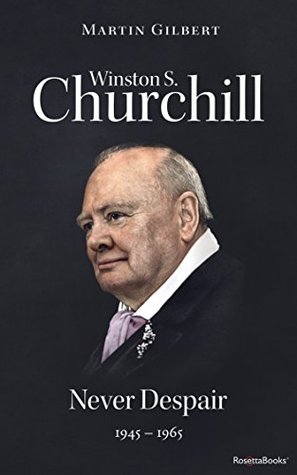
- Past Events
- Upcoming Events
- Affiliate and Chapter Events
- Join the Society
- Join Us On Facebook
June 18, 2008
About the official biography.
WINSTON S. CHURCHILL by Randolph Churchill & Martin Gilbert
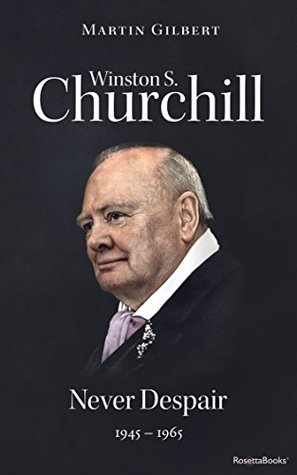
The first volume of Winston S. Churchill was published in 1966, the year after Sir Winston died. After Randolph’s death in 1968 Martin Gilbert, who had joined Randolph as a research assistant in 1962, was appointed by the Churchill family to be the official biographer.
Sir Martin died in 2015 and since that time his former assistant, Dr Larry Arnn now of Hillsdale College is working to complete the biography companion volumes, known as The Churchill Documents . Sir Martin included the following acknowledgement: ‘The publication of [ The War Papers ] was made possible by the exceptional generosity of Wendy Reves, and by the determination of the International Churchill Society… to bring the Churchill document series, known as the Companion Volumes, back into production.’

2024 International Churchill Conference
The following volumes of the official biography have been published to date:, narrative volumes.
Volume I. Youth, 1874-1900 by Randolph S. Churchill Volume II. Young Statesman, 1901-1914 by Randolph S. Churchill Volume III. The Challenge of War, 1914-1916 by Martin Gilbert Volume IV. World in Torment, 1916-1922 by Martin Gilbert Volume V. Prophet of Truth, 1922-1939 by Martin Gilbert Volume VI. Finest Hour, 1939-1941 by Martin Gilbert Volume VII. Road to Victory, 1941-1945 by Martin Gilbert Volume VIII. Never Despair, 1945-1965 by Martin Gilbert
‘The Churchill Documents’, Companion Volumes
Volume 1. Youth 1874-1896 Volume 2. Young Soldier 1896-1901 Volume 3. Early Years in Politics 1901-1907 Volume 4. Minister of the Crown 1907-1911 Volume 5. At the Admiralty 1911-1914 Volume 6. At the Admiralty July 1914-April 1915 Volume 7. The Escaped Scapegoat May 1915-December 1916 Volume 8. War and Aftermath December 1916-June 1919 Volume 9. Disruption and Chaos July 1919-March 1921 Volume 10. Conciliation and Reconstruction April 1921-November 1922 Volume 11. The Exchequer Years 1922-1929 Volume 12. The Wilderness Years 1929-1935 Volume 13. The Coming of War 1936-1939 Volume 14. At the Admiralty September 1939-May 1940 Volume 15. Never Surrender May 1940-December 1940 Volume 16. The Ever-Widening War 1941 Volume 17. Testing Times 1942 Volume 18. One Continent Redeemed January-August 1943 Volume 19. Fateful Questions: September 1943 – April 1944 Volume 20. Normandy and Beyond: May – December 1944 Volume 21. The Shadows of Victory: January – July 1945 Volume 22. Leader of the Opposition: August 1945 – October 1951 Volume 23. Never Flinch, Never Weary: November 1951 – February 1965
“‘Why study Churchill?,’ I am often asked. ‘Surely he has nothing to say to us today?’ Yet in my own work, as I open file after file of Churchill’s archive, from his entry into government in 1905 to his retirement in 1955 (a fifty-year span) I am continually surprised by the truth of his assertions, the modernity of his thought, the originality of his mind, the constructiveness of his proposals, his humanity, and, most remarkable of all, his foresight.” -Sir Martin Gilbert
You will help to support the International Churchill Society by purchasing your hardcover or digital editions at Amazon.com by following this link.
Not Really “Official”
Incidentally, the name ‘Official Biography’ is somewhat misleading, as Sir Martin Gilbert noted in a 1991 interview with Brian Lamb on C-Span’s ‘Booknotes’ : ‘I’m called the official biographer, though to the enormous credit of the Churchill family they’ve never asked to see a single word of what I was writing until the books were printed and bound and ready for sale to the public. They never asked me to delete a word or to skirt around a particular issue. So ‘official’ is a misnomer if it’s thought to mean a censored or restricted biographer.’
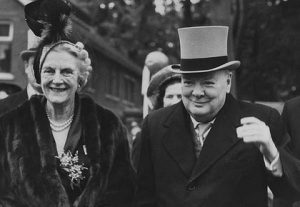
Winston and Clementine
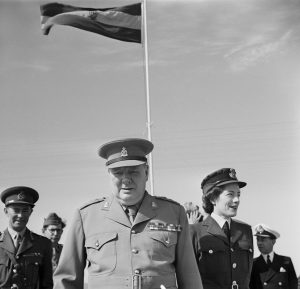
Churchill: Leader and Statesman
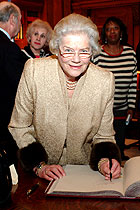
An Interview with Mary Soames
A tribute, join us, #thinkchurchill.

thechurchillsociety
🔹: ICS OFFICIAL Posts dedicated to the leadership and memory of Sir Winston Churchill. 🇬🇧|🇺🇸

Get the Churchill Bulletin delivered to your inbox once a month.
Join the International Churchill Society today! Membership starts at just $29/year.

Try AI-powered search
In the second world war, some diplomacy was done between the sheets
Pamela churchill harriman, daughter-in-law of the prime minister, ran an effective charm offensive.

Kingmaker. By Sonia Purnell. Viking; 528 pages; $35. Virago; £25
P erhaps it was the red hair, alabaster skin and the figure-hugging couture, or her way of stroking an interlocutor’s forearm, just so, as he talked. Or maybe it was her name. As the daughter-in-law of the prime minister , Pamela Churchill enjoyed the mystique that comes with being close to power. Flattered by her attention, powerful men became pliable.
That turned out to be a useful weapon during the second world war . The minds and hearts of Americans needed to be won if the country was to offer aid or join the fight. So while her oafish husband, Randolph, was posted far away, Pamela was deployed by Winston and Clementine Churchill to do a different kind of war work. She wined, dined and seduced in the name of Britain’s battle against tyranny.
Sonia Purnell, a writer (who once contributed to The Economist ) , describes Churchill’s unusual advocacy efforts in “Kingmaker”, an alluring new biography. Churchill set to work in 1941, aged 20. Her first task was to persuade Harry Hopkins, a grumpy, isolationist envoy, that Britain was worth fighting for. His qualms were no match for Churchill’s wiles: Hopkins soon convinced Franklin Roosevelt to help.
Next she romanced Averell Harriman, the man charged with overseeing the Lend-Lease military-aid programme, which was distributing $42bn of food and army supplies (around $900bn today). His friends were bemused by his “unduly pro-British” turn. Then she courted Ed Murrow, a journalist whose nightly dispatches about the “Nazi menace” were listened to by millions of Americans.
Churchill “developed an astonishing collection of bedfellows”, Ms Purnell writes, and “each one was a man with clout in the war effort.” She approached her sexual liaisons like diplomatic negotiation. She knew, for instance, how to identify a man’s ambitions and tailor her advance accordingly. She intuited when to withhold information and when to give it, but fostered an atmosphere where lovers felt they could speak freely. She would relay the intelligence she collected to the prime minister over late-night card games.
As a result, Pamela’s “pillow talk was reaching the ears of leaders and influencing high-level policy on both sides of the Atlantic,” Ms Purnell writes, winkingly suggesting that the idea of the “special relationship” between America and Britain began “between the sheets of the Dorchester Hotel”. After reading this book, few will disagree with her assessment that Churchill should be regarded as “the most powerful courtesan in history”.
These sexual capers, taking place as bombs rained down on London, are a romp to read. Churchill was only 25 when the war—and her disastrous marriage to Randolph—ended. She made the most of her war stories when gallivanting around New York or the Mediterranean. Subsequent lovers included Gianni Agnelli (heir to the Fiat fortune), Élie de Rothschild (a financier) and, it is implied, John F. Kennedy . (The Agnelli and Rothschild families own stakes in The Economist. )
Yet the aim of “Kingmaker” is to portray Churchill as more than a honeypot. The book is of two halves: one dedicated to her magnetism and the other about how she used it to become a canny political operator. After reuniting with and marrying Harriman in 1971, she set her sights on Washington. She hosted donors and rising stars of the Democratic Party for sumptuous events at home in Georgetown and raised six figures on average each night.
At the same time, sensing that the Democrats needed new blood and ideas in the wake of Ronald Reagan’s election in 1980, Churchill Harriman set up a political-action committee (ostensibly run by husband and wife, but soon christened “Pam PAC ”). She personally vetted candidates, assessed their prospects and ruled on which should receive financial support. Among her favourites were Joe Biden, Al Gore and John Kerry.
Perhaps the biggest beneficiary of her benevolence was Bill Clinton, who had lost his seat as governor of Arkansas in 1980. He credited his ability to win the presidency a little over a decade later “in no small measure” to her support. He repaid her by making her ambassador to France, offering her another act as a go-between with him and Jacques Chirac during the Bosnian war. By then she had perfected the deft touch of a diplomat. ■
For more on the latest books, films, TV shows, albums and controversies, sign up to Plot Twist , our weekly subscriber-only newsletter
Explore more
Discover more.

Why the world is so animated about anime
Japan’s cartoons have conquered its screens, and more

How a second nuclear disaster was avoided at Chernobyl in 2022
The Russian occupation underscored the risks posed by nuclear sites in wartime

Han Kang wins the Nobel prize in literature for 2024
The South Korean author offers another example of the country’s cultural clout
How complicated is brain surgery actually?
A doctor reveals the myths and realities of his profession
Why you should read Mohamed Mbougar Sarr
The Senegalese novelist is one of the boldest writers working today
Is TV’s next sure-fire hit, “Disclaimer”, a must-watch or a dud?
The glitzy new thriller is both
- Kindle $11.99
- Hardcover See all buying options
- Paperback See all buying options
By clicking the above button, you agree to the Kindle Store Terms of Use
Sold by: Amazon.com Services LLC

Customers who bought from this series also bought

Report an issue with this series
Is this series page incomplete or incorrect? Tell us.
Customer reviews
- 5 star 4 star 3 star 2 star 1 star 5 star 100% 0% 0% 0% 0% 100%
- 5 star 4 star 3 star 2 star 1 star 4 star 100% 0% 0% 0% 0% 0%
- 5 star 4 star 3 star 2 star 1 star 3 star 100% 0% 0% 0% 0% 0%
- 5 star 4 star 3 star 2 star 1 star 2 star 100% 0% 0% 0% 0% 0%
- 5 star 4 star 3 star 2 star 1 star 1 star 100% 0% 0% 0% 0% 0%
Customer Reviews, including Product Star Ratings help customers to learn more about the product and decide whether it is the right product for them.
To calculate the overall star rating and percentage breakdown by star, we don’t use a simple average. Instead, our system considers things like how recent a review is and if the reviewer bought the item on Amazon. It also analyzed reviews to verify trustworthiness.
- Sort reviews by Top reviews Most recent Top reviews
Top reviews from the United States
There was a problem filtering reviews right now. please try again later..
Learn more about Sir Martin at www.martingilbert.com
Subscribe to Sir Martin’s Newsletter & Book Club
http://www.martingilbert.com/sir-martins-book-club-newsletter/
Follow and share Sir Martin’s legacy:
https://twitter.com/SirMartin36
https://www.facebook.com/sirmartingilbert
Sir Martin Gilbert CBE is the official biographer of Winston Churchill and a leading historian on the Twentieth Century, who, in his 88 books has shown there is such a thing as "true history".
Apart from the seven Churchill Biographies, accompanied by seventeen Churchill documents, a lifetimes work; his other major works includes Churchill a Life,The First World War, The Second World War,The Holocaust,Israel A History, History of the Twentieth Century and his nine pioneering atlases which harness cartography to history.
Born in London in 1936 to Jewish parents, Peter and Miriam Gilbert whose own parents came as refugees from Czarist Russia, he was sent with his parents to Cornwall in 1939 when the Second World War broke out. In the spring of 1940, Martin was evacuated with thousands of children to safety in Canada and returned from Toronto after four years in 1944 as a seven year old boy with his parents and baby sister. They were later evacuated, to Wales, where they were when the war ended. He attended Highgate School for ten years from 1945 to 1955.From 1955 to 1957, Martin did his National Service and in 1957, received a Demyship to Magdalen College, Oxford, graduating in 1960 with first-class honours in modern history.
Two years were spent as a Research Scholar at St Antony's College, Oxford where Gilbert was approached by Randolph Churchill to assist his work on a biography of his father, Sir Winston Churchill. That same year, 1962, Gilbert was made a Fellow of Merton College, Oxford, and he spent the next few years combining his own research projects in Oxford with being part of Randolph's research team in Suffolk, working on the first two volumes of the Churchill biography. When Randolph died in 1968, Gilbert was commissioned to take over the task, completing the remaining six main volumes of the biography.
In 1995, he was awarded a Knighthood "for services to British history and international relations and in 1999 Merton, Oxford, awarded Sir Martin Gilbert a DLitt, " for the totality of his published work."
Researching and exploring, lecturing and teaching, Sir Martin had many travels to major cities throughout the United States and Canada. His travels through Europe included lectures in Lisbon, Cracow, Skopje, Kaunas, Prague, Geneva, and Paris, among others. In each place he visited old friends, made new ones, and was constantly making notes of personal experiences or eye-witness accounts he could weave into his books.
"I returned from New York to Liverpool by ship in April 1944. Since then, having been a mini-part of history, I have never stopped travelling in search of history."
- About Amazon
- Investor Relations
- Amazon Devices
- Amazon Science
- Sell products on Amazon
- Sell on Amazon Business
- Sell apps on Amazon
- Become an Affiliate
- Advertise Your Products
- Self-Publish with Us
- Host an Amazon Hub
- › See More Make Money with Us
- Amazon Business Card
- Shop with Points
- Reload Your Balance
- Amazon Currency Converter
- Amazon and COVID-19
- Your Account
- Your Orders
- Shipping Rates & Policies
- Returns & Replacements
- Manage Your Content and Devices
- Conditions of Use
- Privacy Notice
- Consumer Health Data Privacy Disclosure
- Your Ads Privacy Choices

IMAGES
VIDEO
COMMENTS
—New York Journal of Books "Widely praised as the best single-volume biography of Winston Churchill ever written, historian and commentator Roberts draws on previously unavailable journals and notes for the robust, ... the book, Churchill: Walking with Destiny, is the most precious gift of the year 2018—in history, education, knowledge, and ...
No list of books about Churchill would be complete without at least one objective account dedicated to his time as Prime Minister during World War II. In Winston's War, award-winning historian and journalist Max Hastings chronicles Churchill's experiences, from his election to Prime Minister in 1940 to the end of the war in 1945. During ...
Churchill: A Biography. Paperback - Illustrated, November 5, 2002. by Roy Jenkins (Author) 4.3 436 ratings. See all formats and editions. Acclaimed historian Roy Jenkins presents a comprehensive biography of Winston Churchill, an icon of modern history, from his childhood to the critical World War II period and beyond—a New York Times ...
There are several wonderful books available on Churchill, but this is probably the best place to start. From Publishers Weekly. Author of an eight-volume official biography of Winston Churchill, Gilbert here distills his vast knowledge into a lucid, comprehensive and authoritative life of the man considered by many to have been the outstanding ...
In this landmark biography of Winston Churchill based on extensive new material, the true genius of the man, ... "In my opinion, the book, Churchill: Walking with Destiny, is the most precious gift of the year 2018—in history, education, knowledge, and literature. . . . If there were a Nobel Prize for historical research, Andrew Roberts ...
In this landmark biography of Winston Churchill based on extensive new material, the true genius of the man, ... "In my opinion, the book, Churchill: Walking with Destiny, is the most precious gift of the year 2018—in history, education, knowledge, and literature. . . . If there were a Nobel Prize for historical research, Andrew Roberts would ...
About Churchill. Acclaimed historian Roy Jenkins presents a comprehensive biography of Winston Churchill, an icon of modern history, from his childhood to the critical World War II period and beyond—a New York Times bestseller. "This is a first class, well-sustained work of history and a masterpiece of biography…
In this landmark biography of Winston Churchill based on extensive new material, the true genius of the man, statesman and leader can finally be fully seen and understood--by the bestselling, award-winning author of Napoleon and The Last King of America. When we seek an example of great leaders with unalloyed courage, the person who comes to ...
His critically acclaimed book Lloyd George and Churchill: Rivals for Greatness won him the 2007 Times Higher Young Academic Author of the Year Award. The best books on Winston Churchill, as recommended by historian Richard Toye, covering his early life, political career, and the mythmaking that followed.
Martin Gilbert, appointed official biographer after Randolph's death in 1968, now begins an almost day by day chronology of Churchill's life, concentrating on the first perilous years of World War I. We begin with Churchill leading the Admiralty in early battles with the German fleet, moving to the epic failure of the Dardanelles and ...
By Andrew Roberts. Illustrated. 1,105 pp. Viking. $40. In April 1955, on the final weekend before he left office for the last time, Winston Churchill had the vast canvas of Peter Paul Rubens's ...
A complete list (arranged by date) of Churchill's 43 book-length works in 72 volumes, published over the course of his lifetime (1874-1965) and posthumously. When titles are divided by a slashmark, the second title is the American, the first the English. ... Winston's filial biography is still a standard of its type, brilliantly ...
In this landmark biography of Winston Churchill based on extensive new material, the true genius of the man, ... "In my opinion, the book, Churchill: Walking with Destiny, is the most precious gift of the year 2018—in history, education, knowledge, and literature. . . . If there were a Nobel Prize for historical research, Andrew Roberts would ...
THE INTERNATIONAL BESTSELLER A SUNDAY TIMES, THE TIMES, ECONOMIST, DAILY TELEGRAPH, EVENING STANDARD, OBSERVER BOOK OF THE YEAR 'Undoubtedly the best single-volume life of Churchill ever written' Dominic Sandbrook, Sunday Times A magnificently fresh and unexpected biography of Churchill, by one of Britain's most acclaimed historians Winston ...
Winston Churchill (born November 30, 1874, Blenheim Palace, Oxfordshire, England—died January 24, 1965, London) was a British statesman, orator, and author who as prime minister (1940-45, 1951-55) rallied the British people during World War II and led his country from the brink of defeat to victory. After a sensational rise to prominence ...
NEW YORK TIMES BESTSELLER One of The Wall Street Journal 's Ten Best Books of 2018 One of The Economist 's Best Books of 2018 One of The New York Times ' s Notable Books of 2018 "Unarguably the best single-volume biography of Churchill . . . A brilliant feat of storytelling, monumental in scope, yet put together with tenderness for a man who had always believed that he would be Britain ...
Understanding Winston Churchill: A Brief Overview. Before diving into the books themselves, it's essential to have a basic understanding of Churchill's life and legacy. Born in 1874, Churchill's political career spanned more than half a century, and he served as the Prime Minister of the United Kingdom twice.
For most of us, seeking a more concise, authoritative view, Roberts will be enough. Churchill: Walking with Destiny is published by Penguin on October 4 at £35. To order your copy for £30, call ...
The first volume of Winston S. Churchill was published in 1966, the year after Sir Winston died. After Randolph's death in 1968 Martin Gilbert, who had joined Randolph as a research assistant in 1962, was appointed by the Churchill family to be the official biographer. Sir Martin died in 2015 and since that time his former assistant, Dr Larry ...
Winston Churchill Biography: Lessons from a Visionary Leader. by Douglas Glenn Rohde. 5.0 out of 5 stars. 2. Paperback. ... Book 7 of 8: Winston S. Churchill Biography. 4.6 out of 5 stars. 278. Kindle. $0.00 $ 0. 00. Free with Kindle Unlimited membership Join Now. Available instantly. Or $9.99 to buy.
Sonia Purnell, a writer (who once contributed to The Economist), describes Churchill's unusual advocacy efforts in "Kingmaker", an alluring new biography. Churchill set to work in 1941, aged 20.
The first volume of this authoritative biography chronicles the prime minister's youth from birth to early adulthood: "An intimate, eloquent testimonial" (Kirkus Reviews, starred review).Winston S. Churchill's son, Randolph, delivers a vivid, personal portrait of his father in this first part of an eight-volume biography that is widely considered the "most scholarly study of ...